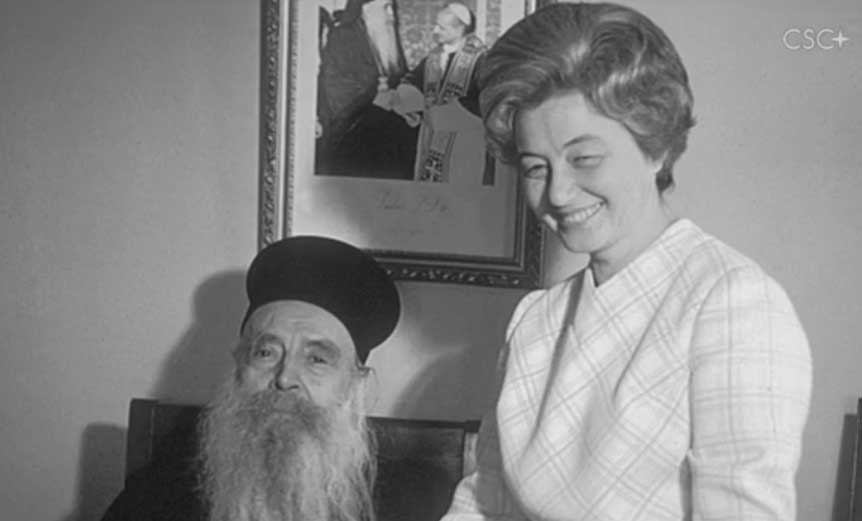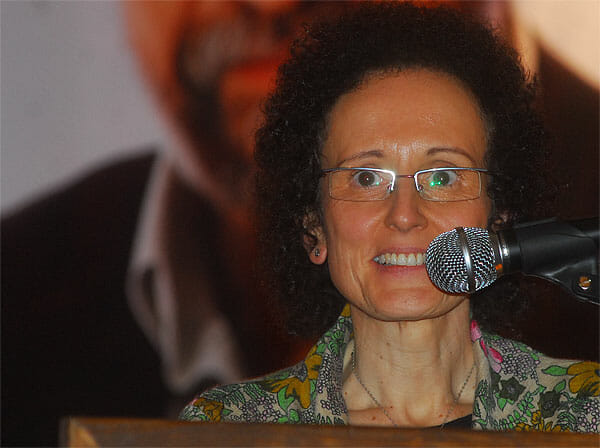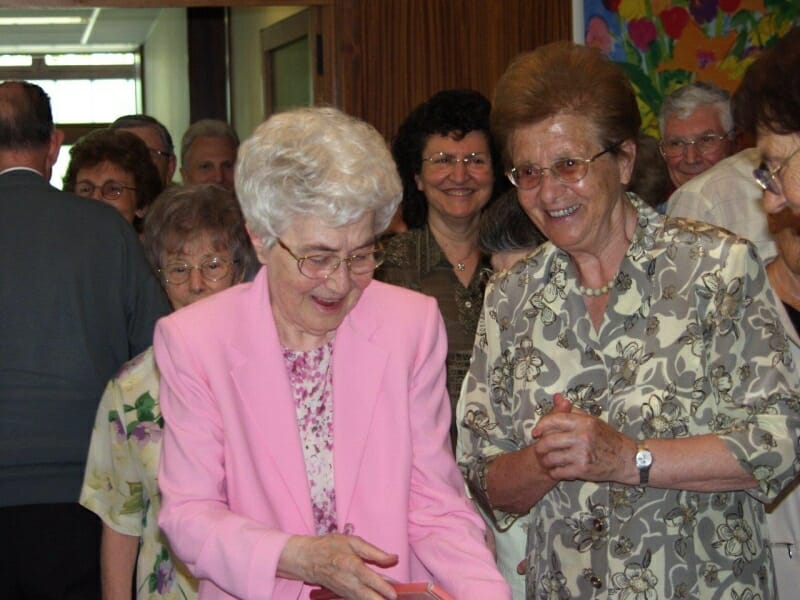


In Memory of Chiara on the Shores of the Bosphorus

Istanbul: Patriarch Bartholomew does the honours in the Orthodox church of Aya Strati Taksiarhi, at an event involving more than a hundred representatives from the Orthodox and Catholic world, marking the 7th anniversary of Focolare foundress, Chiara Lubich. Attendees included the Metropolitans Ireneos, Apostolos and Elpidophoros; two Archimendrites, Father Vangeli who translated the books from Greek into Turk; and the Great Archimendrite Vissarion. Also attending: Armenian Catholic Archbishop, Levon Zekiyan and the Catholic Bishop, Louis Palâtre, as well as many others. The books were presented by Maria Caterina Atzori, linguist from the Focolare’s Centre for Studies who translated the books into Greek. The moderator was journalist Nikos Papachristou from Athens.
“During the course of the centuries, the divine epiphany of the Lord has been manifested in many ways, so that the human family could understand the things of God,” the Patriarch exhorted, after he opened the event with a prayer for Chiara, and intoning the hymn to the Holy Spirit. “He has never tired of raising up holy men and holy women who, through their example, with their love founded on divine philanthropy, and with their word inspired by the Holy Spirit, have continually solicited a metanoia, a conversion of heart for the whole of suffering humanity.”
In his speech, he described the spiritual figure of Chiara, beginning with his direct testimony as an eye witness of the encounters between Chiara and Patriarch Athenagoras: “How could one not embrace the Wisdom of God in the blessed work that our sister Chiara has offered to our Churches, to our societies and to all people of good will? She whom our beloved Predecessor (. . .) lovingly called Tecla, the disciple of Paul, the woman who is equal to the Apostles.”
Then he outlined the salient points of the path of spirituality that she opened in the Church and beyond: “Gentle Chiara had answered God’s call, being totally conformed to her Master, but especially allowing herself to be made into a vessel that offers salvation, in order to bring all to Christ. Her life was spent in finding paths of encounter and dialogue with everyone, distinguished by a profound respect for every culture in which she knew how to conduct a journey of encounter, mutual understanding and mutual collaboration.”
“Chiara Lubich began her life journey, dedicated to the Lord, in the suffering of war. In this suffering she lived the Jesus Crucified and Forsaken, and understood that there is no Resurrection without passing through the downfall. And the suffering of Christ became her personal suffering, but never despair.”
“Her life was characterised by a zeal for Holy Scripture which, in her, became founding Word, living and exhilarating. She lived the Lord’s commandment to its depths: “As I have loved you, you should also love one another” (Jn 13:34). To the point of infecting countless people with this love, different among themselves, but united in a concrete ideal of communion.
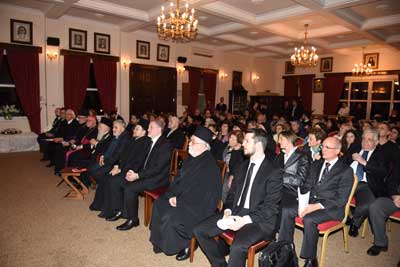 Chiara was ever faithful to her Church. And in this conviction, she felt the drama of the division, of the impossibility to receive from the same Chalice.
Chiara was ever faithful to her Church. And in this conviction, she felt the drama of the division, of the impossibility to receive from the same Chalice.
Perceiving the cry of suffering because of the laceration, she offered herself entirely for the charism of unity, becoming its instrument in the hands of God in meeting the heads of Churches and simple faithful. But she did not stop there: she sought, urged and invited us to find new paths of communion.”
“Chiara had a totally particular love for the Holy and Divine Eucharist of the Lord. In the Eucharist she perceived the gift of love from the One who was offered once for all, to draw man to himself. We can say that in her a Eucharistic conscience of unity was formed.” “There is still another aspect that we can see in the work of Chiara: the Unity of the Trinity, through the Eucharist, passes into the family (. . .) The place where mutual love can shine, which joins its members in a totally natural way (. . .) And in this context, the unity of the human family can be glimpsed in all of its aspects, in the society, in politics, in economy, in respect for the work of God for each one of us singularly and in all of His marvelous creation. The message and work of Chiara, therefore, turn out to be ever timely, especially with regards to the global context in which we are living.”
Hence, “the gift that the Focolare Movement today offers in presenting Chiara Lubich in the Greek language is particularly appreciated. We welcome it as a gift amongst brothers and sisters, which will surely be appreciated also by the Greek public. To the Greek-Orthodox faithful this wondrous message of unity and love!”
In conclusion, he turned directly to Chiara that she might intercede “so that the dawn of a new day for this wounded humanity might soon dawn, and that the sentiments for which she had spent her entire life, would produce abundant fruits, wherever today we do not find anything but darkness and bloody martyrdom.”
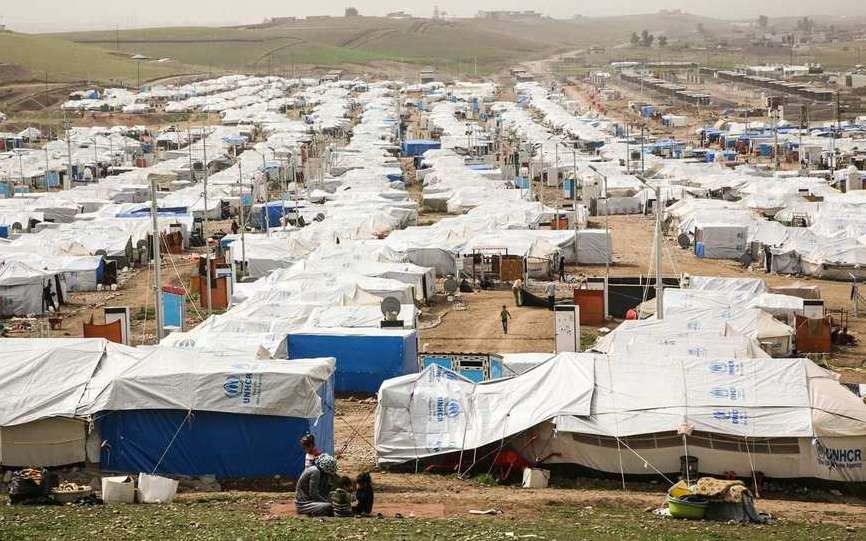
Hope in the Kurdistan Region of Iraq

“I live in Erbil, northern Iraq, where I began a school for Kurdish children in 2010,” says Malu Villafane, who born in the Philippines. For the past few years I have been working in a local sanctuary, organising activites and projects. Last August, the shrine was turned into a refugee camp. The cities of Sinjar and Mosul, along with adjacent villages like Qaraqush, Aaramlesh, Bartalla and others, had been invaded by ISIS. The inhabitants fled leaving everything behind, and they took refuge in Kurdistan, with us. There was a very heavy atmosphere in the camp, so much pessimism, children lost and abandoned. Together with the people in charge of the centre, we started up some activities for the teenagers and children, which also involved some of my colleagues from school.”
Over the years, how have Christians, Muslims, Yazidis and other ethnic groups coexisted, such as the Kurds, Turkmen, and so on?
“They respected each other, and did everything together. I work with the Kurds, Turkmen, Arabs and other foreigners. During the crisis many Kurds hosted refugees in their own homes. The Kurdistan people don’t condone this massacre.”
When did the refugee crisis begin in Erbil? Where did they settle? What will they do over the next few months?
“The crisis which caused this forced migration already began in June 2014 and worsened at the beginning of August. The people lost everything: home, work, school. Many of them first took refuge in empty buildings, churches and on the streets. When they could, they stayed with relatives in Erbil. Many non-profit organisations, along with the Church, had to respond to the crisis without any time to prepare. They were in need of everything! Working together we were able to collect a lot of basic necessities. During that period, the temperature rose above 50°C, infernally hot. Now, during the winter it is quite cold. There are not enough tents to house the thousands of families. There are camps without food and water for extended periods of time. Yet, after a few months, the children began to smile and play, to experience something outside the camps, like visiting the swimming pool or public park. The parents see their children’s joy, and rediscover hope. They’ve begun to clean the camp, to cook and give a hand.
After living in this dramatic situation with them, my life was turned upside down. My stay in Iraq took on a very deep meaning: I was living for universal brotherhood.
But does it make sense to work for brotherhood? What pushes you to go on working in the camp?
“If I look at the situation from a human point of view, I become discouraged and feel like escaping. But, if I look at it with the eyes of a hope based on faith, I’m able to go beyond all the suffering I see. I think of the words of the Gospel: “When I was hungry, you gave me something to eat; when I was sad, you comforted me. . .” These words give me strength to face the daily difficulties that I encounter in the camp. It’s not easy to describe all the suffering there is; many of them have lost hope, lost everything. This experience has expanded my heart to welcome everyone as a brother, a sister. It has enabled me to come out of my own comfortable little world and serve others. I want to live for universal brotherhood not because it solves problems, but because, one step at a time, it’s like planting a seed. Peace mostly grows from the small things we do for one another each day.”
What can we do from where we are, to be near to these people?
“I think we need to begin by confronting the topic of “disinformation.” Even though the emergency continues, hardly anyone speaks of it. Spread a culture that welcomes and listens, especially amongst the different races and religions of your cities; promote activities and projects that break down the walls. I thank all of you for your help, and may we continue to believe that Peace is possible.”
Source: Umanità Nuova online
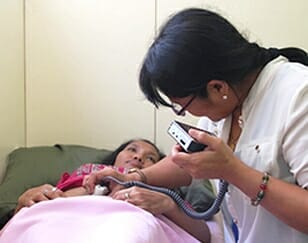
Living the Gospel: The Paradox of the Cross
“Being doctors here in the Philippines where there is widespread poverty, my husband and I set up a modest private medical clinic in our small house. It’s certainly was not easy thinking of our colleagues who all have careers in the West. At times we ask if we did well to stay here. But the thought of so many needy people among our own people – children in need of medical care, married couples in need of guidance, the elderly with terminal illnesses. . . The Gospel motivates us to give a personal contribution towards improving society beginning from our own land.” L. R. – Philippines
Moses drawn from the street
“A large family: six children and one on the way, who then died before birth. The mother was saved, but for several days she lingered between life and death. During those days, some military had taken to the hospital in which she was being care for, a newborn that had been abandonend on the street. After some treatment, he recovered but was in need of a family. He immediately found it in that mother who had lost her child. His new parents named him Joseph-Moses, because the hospital is called St. Joseph’s, and Moses because he had been abandoned and found.”H. E. – Congo
I wanted to have my revenge
“I lost my mother just eight days before my marriage. She had been hit by a car, and I decided to have my revenge. I took a bus to the place where the driver lived. On the way, I recalled some words about love of God and neighbour and, little by little, my anger faded. When the other person saw who I was, he turned pale, but I calmed him: I was there only to find out how the accident had happened. After listening to his story, which he shared amidst tears, I tried to put him at peace and the joy promised by the Gospel accompanied me on the return trip.” F.A. – Rome
Source: The Gospel of the Day – March 2015 – Città Nuova editrice
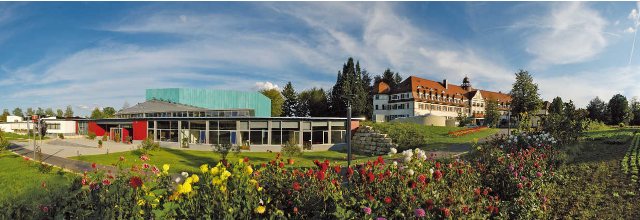
Movements: transition and creative faithfulness
150 heads of evangelical movements and free churches, within the multi-faceted reality of the evangelical world, and with representatives of Catholic movements, posed the query: how to remain faithful to one’s own charism in times of great change?
It is the situation of how various movements that arose over the last century can face the situations today and how they can respond to the various challenges facing Christian ideals, and their searching for new answers, adapted to the times we are living in, though remaining faithful to their roots.
At the “Leaders Convention” Gerhard Pross, moderator and one of the more renowned figures of Together for Europe (network of Christian movements that work together for the benefit of the European continent) and who wanted Focolare President, Chiara Lubich, to be present, as the first successor of Chiara Lubich and as the leader of the Movement.
Maria Voce’s reflection helped to understand the difference between the foundation phases and the “charismatic period,” “full of new, dynamic, luminous surprises,” and the phase of maturity, the “period of creative faithfulness” of a movement, in which, to “grow, develop and multiply” with originality, the inspirational ideas and established by the founder. She went on to recount the Focolare’s commitment to live a widespread leading role of those who live the spirituality and share its aims, and above all, to “go out” more in the “various environments of life and society,” without limiting themselves to living and testifying to unity within the movement, but bringing the spirit and experience of unity to the entire world, “so that all may be one” (John 17.21), the specific aim of the Focolare. “We cannot therefore think of ourselves, Maria Voce affirmed, “we have to “go out” and give of ourselves.” To be able to go beyond ourselves, we need to choose Jesus Forsaken who in his abandonment went beyond himself to unite man once again with God, and unity is one of the main points of the spirituality of unity.
There were members of the evangelical Church, Pentecostal and charismatic movements,
each of which are involved in different way or in social works or on the front of evangelisation, education, political commitment. The “Leaders’ Convention” was created in 1974, well before John Paul II launched in 1998 the communion between movements within the Catholic Church This experience of sharing has therefore continued for some years now. A significant moment which all remembered was in 2000, when with Chiara Lubich at Rothenburg a step forward towards reconciliation was made. In fact the long standing misunderstandings that had developed along the years were cleared up during the “historic moment of mutual forgiveness,” Maria Voce recalled, and which became «a founding experience for communion between movements and communities of different Churches, which later came up with the project “Together for Europe.”
A common step which all look to is the Munich 2016 event, when the “Together for Europe” network will meet for a congress and public manifestation, and will be in turn a step towards the 500th anniversary of Luther’s Reform, offering itself as a prophetic sign of a reconciled and united Europe. On her return from Germany on 4 March, Maria Voce participated in the audience with Pope Francis together with the Bishop-Friends of the Focolare, and conveyed to him the greetings of the 150 representatives of the evangelical movements and their hope in the common commitment for unity. “Very well,” Pope Francis said, when he thanked them. «Your work on the ecumenical front is very important».
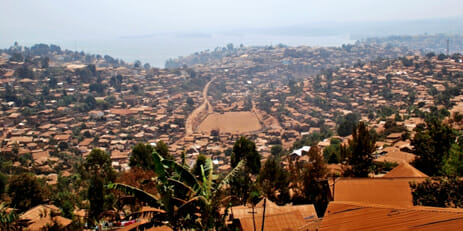
Congo: a forgotten war
The Democratic Republic of Congo: a big country with immense natural resources. A population of 72 million with hundreds of ethnic groups. The difficult relationships with the West, the war for the exploitation of minerals, the drama of a forgotten people.
We interviewed the Congolese biologist, Pierre Kabeza, trade union member, a family man who, three years ago, had to leave his city in the Great Lakes region, and who now is at Sophia University Institute.
Why did you have to go on exile, leaving your wife and daughters? Bishop Munxihiwa, bisop of Bukayu who was killed for his battle for justice used to say: «At times there are things we don’t unde stand or see clearly, if not with eyes that have cried.” After his death we were all discouraged but Mons. Kataliko arrived, and decided to follow his footsteps, to speak out in the name of those who have no voice. Kataliko dried the tears of a population which was no longer heeded. On 24 December 1999 he wrote a message denouncing the unjust war, the occupation of Congo by the nearby countries, the exploitation and plunder of mineral resources. This was why they stopped him from doing his pastoral work for 7 months and 20 days. The bells no longer rang. We did sit-in protests every day until he returned to the Diocese. Muslims and Christians of Bukavu, went together to the cathedral where Bishop Kataliko offered mass and forgiveness for those who had made him suffer. He died in Italy a few weeks later.
To continue the work of our bishops – defence of the truth, battle for justice and liberty – a new group, the “Dauphin Munzihirwa Kataliko” (DMK) was formed. The initiatives to fulfil these aims irked their enemies. As head of the DMK, I was involved, together with the group in the field of education, to start with the education of children. The teachers in fact, were not paid by the State but financed by the parents. We took the steps to make the Congolese government assume all its responsibility for the country, and I spoke even to the President of the Republic, reminding him of article 43 of our constitution which recognizes the obligation for children to attend elementary school. He listened but sad to say, up to now nothing has changed. Because of my commitments however, I was threatened, arrested and tortured. My house was attached twice and they destroyed everything. This is why I had to leave to save my life.»
A forgotten war, 6 million dead and 2 million women and children escaping from their villages and cities. What else can you recount?
Yes, also Maria Voce, President of the Focolare said that it seems as if the dead in the “lands far from the Western world” are given less value in terms of humanity and “less political importance, thus weighing less on the conscience of the International community. This is the case of Congo. Our dead are of no interest to the international community because we are at the outskirts of the world. And yet, today, war is a common enemy for all. Mandela taught us that “we were born to be brothers.”
In Europe little is said of the war in Congo, and then without saying the whole truth. It is not only an ethnic war. It’s true that we have many problems in Africa, but I wonder: why is the fire lit only in the rich countries where minerals and oil abound? The situation is always fiery in places where we find coltan, gold and diamonds. And where do all these minerals end up? They are used for smartphones, air bags, navigators and so on. It is estimated that for every kilo of coltan extracted in Congo, two children die. Others are obliged to become “children soldiers.” It would important to let our children know that on using a videogame another child in the peripheries of the world loses his life.»
What does this intellectual and human experience at Sophia signify for you? What are your expectations for yourself and for the wellbeing of your country?
«Sophia was one of the gifts I received in Italy, I think it would have been better if I had made this experience before committing myself as a union member because I now understand the importance of fraternity. I think that the failure of our Congolese society lies in the fact that we have forgotten the principle of humanity, a force that unites us all, and excludes no one. Today I understand that the other is part of me, that his problems are my very own. Political commitment should help us understand that we are responsible for one another. We are equal but different and if mankind exploits this wealth, all would benefit. Sophia has taught me also to discern the path of dialogue. True dialogue which makes room for the other, where there is always a part of the truth.»
Step by step
 When Pope Francis met the General Assembly of the Focolare Movement last September he spoke of Chiara Lubich as an “extraordinary witness” to unity who “brought the fragrance of Jesus to so many human realities and to so many parts of the world”. Today, seven years after the death of the founder, the Focolare Movement reaffirms its vocation to be a school of communion and a hive of unity for the whole Church as Maria Voce explains in the following interview with our paper.
When Pope Francis met the General Assembly of the Focolare Movement last September he spoke of Chiara Lubich as an “extraordinary witness” to unity who “brought the fragrance of Jesus to so many human realities and to so many parts of the world”. Today, seven years after the death of the founder, the Focolare Movement reaffirms its vocation to be a school of communion and a hive of unity for the whole Church as Maria Voce explains in the following interview with our paper.
Do you believe that Chiara’s charism of unity is destined to be fulfilled?
Do you think that if I did not believe this I would have given my life to the Movement? We believe that unity will be fulfilled because it is the very thing Jesus asked for in his prayer to the Father: may they all be one. And we cannot imagine that the prayer of the Son of God cannot be fulfilled. Of course, we don’t know how it will come about, we don’t know when, but we are giving our lives so that it can be achieved. We want it to happen and each day we take small steps forward so as to hasten the day when it will be completely fulfilled.
What does “being a family” mean according to Chiara’s legacy?
When I was elected the first time I said my hope was that the Focolare would give precedence to relationships. I believe that, at root, this is what we have tried to do, even though there is always the danger of individualism. Building relationships with people who are within the Movement means truly being interested in the others and having a love that can understand, forgive, take on board and help when there is a need: all that happens in a natural family. We want to live as a family, but a genuine family, one founded on true and authentic relationships….
What role do the movements have in the Church today?
It is a twofold role: on the one hand the movements are bearers of charisms, which are gifts of the Holy Spirit for the Church and the world. They have an influence on the whole Church, because they are available to everyone so as to build up the ecclesial body. … Within each movement there is also a drive towards a more radical gospel life.
Their members want to be more committed, to be open to the world around them. These are characteristics that the movements try to live but which really apply to all Christians. … In movements and associations people can help each other: we can discover the value of being alongside one another, so as to give each other a hand, encourage and support each other and also to help get up again if we fall. …
Pope Francis entrusted three words to the recent Assembly: to contemplate, to go out, to study. How are you doing this?
Pope Francis quoted something Chiara Lubich had said: this is the great attraction of modern times, to penetrate to the highest contemplation whilst mingling with everyone, one person alongside others. Chiara always taught us that we must become Jesus. So, to contemplate means being Jesus, becoming Jesus, living the Gospel to the full, managing to discover all that Jesus is doing in history, what he wants to tell us through all the people we meet. …
Regarding going out, this is one of our priorities. We felt it even more strongly when Pope Francis emphasised it and we felt the joy of being in harmony with what the Pope is asking of us today. To study means for us, above all, continually revisiting our charism, not so as to change it in any way but to see how it is responding today to the signs of the times, being able to understand the language, the approaches and the new questions arising in the world today. We take this on board so as to express the one charism in today’s world.
What priorities do you as President have for the future of the Movement?
I am not the one who decides on the priorities. I need to discern them through what is expressed by the Movement all over the world. The important thing which emerged from the recent assembly is to be very open and to go out towards the peripheries, the margins, which are not only geographical peripheries but wherever love is missing and where divisions block the way to achieving the spirit of unity of the charism Chiara left us. … This leads as a result to giving special attention to places where those divisions are most obvious. This means countries where there are huge differences in standards of living, or where religious differences become causes of conflict, war and terrorism. We would like to put resources and skills into these countries in particular so as to do all we can to help. But of course we must not forget Europe which has cut itself off from its spiritual roots. We want to continue to dialogue with post-modern culture, with the ‘dark night’ which seems to envelop people’s lives today.
By Nicola Gor, in the Osservatore Romano of 18th March 2015
The whole interview in Italian is available via the link below
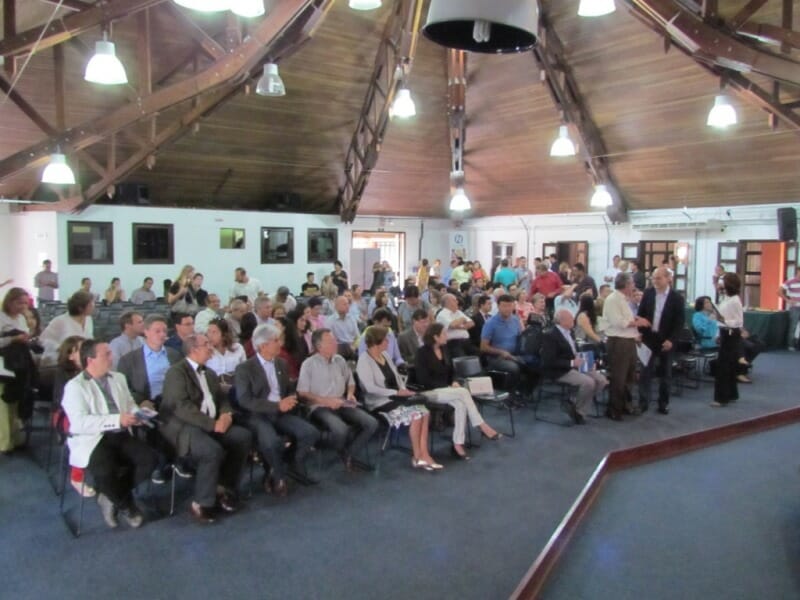
Brazil remembers Chiara Lubich
 Saturday 14 March. The “Salão dos Atos” hall immersed in the greens of the Curitiba Barigui Park, was filled with Federal and State Deputies, Mayors, Councillors, Public Officers, youth and academics who came from the Amazon, the Northeast, Brasilia and other cities of Brazil.
Saturday 14 March. The “Salão dos Atos” hall immersed in the greens of the Curitiba Barigui Park, was filled with Federal and State Deputies, Mayors, Councillors, Public Officers, youth and academics who came from the Amazon, the Northeast, Brasilia and other cities of Brazil.
Unusual words echoed in the meeting hall: politics was presented as the “ love of loves” which urges Public Administrators to create projects that respond to the demands of the communities and gives citizens the possibility to achieve their own aspirations.» They all were reminded that «power that enforces but it is love that confers authority.» The word “fraternity” was often repeated, not only as the ethical principle of politics but as “its very substance.” These were the central points of Chiara Lubich’s thought which Maria Voce, President of the Focolare, cited in her message and which were deepened in the various speeches.
This vision of politics that Chiara herself had proposed years ago in the parliaments of the various countries, appeared today like a light in the crisis tunnel Brazil is undergoing. It stirred up new hope, because many testimonials testified to its implementation not only in Brazil, but also in other countries. An innovative panorama, presented in a documentary-video at the start of the event promoted by the Political Movement for Unity (MPPU) of the Focolare, on Chiara’s
The meeting took place simultaneously with two popular manifestations of opposite beliefs and many of the interventions underlined the political, economic and ethical crises, stressing the growing lack of faith in the institutions. «We have come as mediators, called to change this situation through dialogue and fraternity,», said Sergio Previdi, National President of the MPPU.
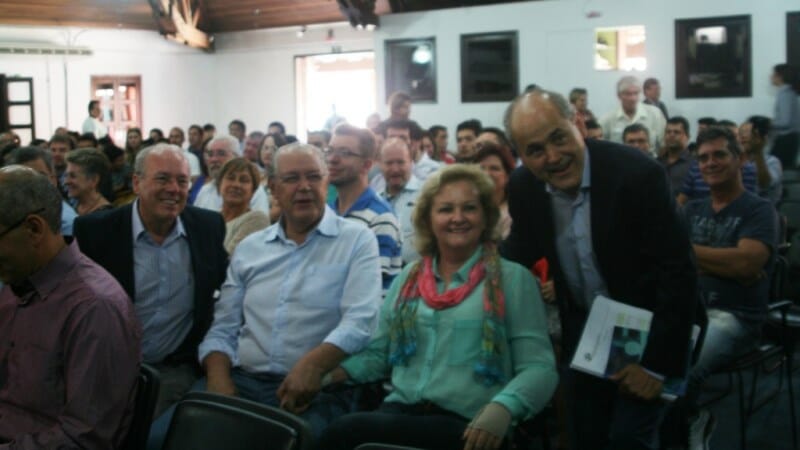 «This is a great challenge. Democracy is not only a technical fact, but needs a soul, We have to re-think politics in order re-humanize it,” affirmed Gustavo Fruet, Mayor of Curitiba. And he cited the innovative political culture of Chiara, which inspired the 2010-2030 programme to make Curitiba “a global innovator city,” already recognised as a model of sustainable planning and as the city of fraternity ».
«This is a great challenge. Democracy is not only a technical fact, but needs a soul, We have to re-think politics in order re-humanize it,” affirmed Gustavo Fruet, Mayor of Curitiba. And he cited the innovative political culture of Chiara, which inspired the 2010-2030 programme to make Curitiba “a global innovator city,” already recognised as a model of sustainable planning and as the city of fraternity ».
Many of the speeches of Councillors and Deputies of various political parties that try, not without effort, to actuate a politics that goes against the current, testified to how they draw from MPPU a “new strength and new commitment.”
«Fraternity means implementing a strategy of unity, seeking dialogue between the majority party and the opposition between institutions and societies, in the mutual effort to achieve common good», affirmed the Mayor of Sorocaba, Antonio Carlo Pannunzio.
Julio Carneiro of MPPU Brazil, mentioned the citadels founded by Chiara Lubich (more than 20as of today), as model-structures of a city, to testify to the impact fraternity has on civil coexistence..
«A new political culture that calls for new men and women», affirmed Prof. Marconi Aurélio Silva, highlighting the urgent need to train the youth in active citizenship, based on fraternity: «given that we are by nature relational beings and not isolated individuals » And he spoke of the many results achieved by the Civitas School in many states of Brazil and the world.
For further information consult: www.mppu.org.br – www.focolares.org.br
Hungary: Refugees welcomed after long voyage
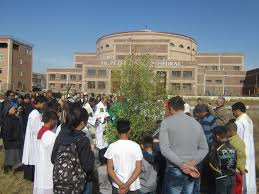
From Korea to Mongolia
 It is more than ten hours by plane from the Mongolian capital, Ulan Bator, to Daejeon, South Korea, but both cities belong to a single diocese. Outside the capital, the population density of Mongolia is two inhabitants per square kilometre. Christians comprise 2% of the population in a land with a Buddhist tradition of thousands of years (53%) and widespread atheism (29%).
It is more than ten hours by plane from the Mongolian capital, Ulan Bator, to Daejeon, South Korea, but both cities belong to a single diocese. Outside the capital, the population density of Mongolia is two inhabitants per square kilometre. Christians comprise 2% of the population in a land with a Buddhist tradition of thousands of years (53%) and widespread atheism (29%).
As the local church was wondering how it would care for the few Christians, it turned to the New Famlies of the Focolare Movement for help, finding that several Korean families were willing to share the Gospel message along with their witness to the spirituality of unity as it is lived in families. The parish of Ulan Bator has a social centre that welcomes children and teenagers for after-school programmes, a community farm and a free clinic. This is where the Focolare carries out its main mission. Let’s see what that mission is.
Two or three couples from Korea travel regularly to Mongolia, to visit parishes and meet with families. The main topic is families and how they apply the Gospel to their daily lives. This has brought about the transformation of couples and families in that land as well. They also meet with young people.
“Once, we brought medicines,” Cedam recounts. “The joy of the reverend sister was indescribable when we handed her the package: they were exactly the medicines she had been looking for, since her own had run out. Winter lasts for half the year in Mongolia. For months the temperature reaches -40°C, and so it is quite difficult to leave one’s home in search of the necessities. As the day approaches for our visit to Mongolia, the other families in the community gather provisions that can be taken along. One time we thought of taking footballs and basketballs so that the boys could play on the wide plains, but we needed to buy them and then there was the problem of geting them on the plane. . . One family had placed a money box in its shop to collect funds for the Mongolian families, and so we were able to buy not only balls, but also the equipment for inflating them.”
“The bishop is our driver,” Andrea continues. “He welcomes us at the bishop’s house, drives us to the parishes and encourages us to give with open hands our experiences as Christian families. We find that this is what families are most waiting to hear. The more we visit them, the more affection they express when we go back again. They also want to share how they have been living the Gospel. During one homily, in the presence of several congregations of sisters, the bishop said that we had been sent by God as misionaries and, calling us each by name, he described us as: my friends. Whenver we leave Mongolia, we feel like we are leaving a piece of our hearts behind. Because every time it’s like an experience of what the first Christian communities must have been like.”
Maria Orsola: “Hurray for Life”
In 1968 a race towards heaven by a young girl who found the secret of happiness. Her cause for beatification is currently underway.  Sixteen years old and always on the move. At breakneck speed. Her destination: heaven. Maria Orsola Bussone (October 2, 1954-July 10, 1970) came from Piedmonte, Italy. She loved the pop music of the 1960’s and was interested in student protests. She played guitar and was taking voice lessons. A teenager like all the others, she was in love with nature, sport and music. She jotted down some of her thoughts in a diary, had many friends and wrote letters to the closest ones. She was the simple daughter of an old world that seemed on the verge of being overthrown by the winds of modernism. But her apparently serene life as the child of a tiny village in the Alps of Piedmonte, was hiding an extraordinary soul. A clear and genuine faith. With the support of their priest, and spirituality that gave her a head start, together with other friends, she brought to fruition the guidlines of the Second Vatican Council. Mariolina went into fourth gear and, in a short time, went through all the stages. In 1968 she was invited by the priest don Vincenzo Chiarle to take part in the first Gen congress, the new generation of the Focolare Movement. There Chiara Lubich presented to the youths of the 60’s another revolutionary model: that of a just man, who allowed himself to be immolated for the liberation of others. He also had his program: “That all be one”. Maria Orsola was fascinated, and this became the light of her life. When she was sixteen years old, her young life came to an abrupt end. But she left a stream of light behind her. She once revealed that she would give up her life, if that would help young people to discover God’s beauty. “And God took her at her word”, said John Paul II, speaking to thousands of her fellow citizens in Turin in 1988: “She accepted to transform her life into a gift, not a selfish possession” . “Hooray for life” was her motto.
Sixteen years old and always on the move. At breakneck speed. Her destination: heaven. Maria Orsola Bussone (October 2, 1954-July 10, 1970) came from Piedmonte, Italy. She loved the pop music of the 1960’s and was interested in student protests. She played guitar and was taking voice lessons. A teenager like all the others, she was in love with nature, sport and music. She jotted down some of her thoughts in a diary, had many friends and wrote letters to the closest ones. She was the simple daughter of an old world that seemed on the verge of being overthrown by the winds of modernism. But her apparently serene life as the child of a tiny village in the Alps of Piedmonte, was hiding an extraordinary soul. A clear and genuine faith. With the support of their priest, and spirituality that gave her a head start, together with other friends, she brought to fruition the guidlines of the Second Vatican Council. Mariolina went into fourth gear and, in a short time, went through all the stages. In 1968 she was invited by the priest don Vincenzo Chiarle to take part in the first Gen congress, the new generation of the Focolare Movement. There Chiara Lubich presented to the youths of the 60’s another revolutionary model: that of a just man, who allowed himself to be immolated for the liberation of others. He also had his program: “That all be one”. Maria Orsola was fascinated, and this became the light of her life. When she was sixteen years old, her young life came to an abrupt end. But she left a stream of light behind her. She once revealed that she would give up her life, if that would help young people to discover God’s beauty. “And God took her at her word”, said John Paul II, speaking to thousands of her fellow citizens in Turin in 1988: “She accepted to transform her life into a gift, not a selfish possession” . “Hooray for life” was her motto.
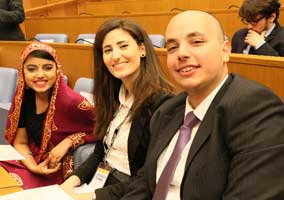
Middle East: the force of love against terrorism

Lara Abou Moussa and George Zahm
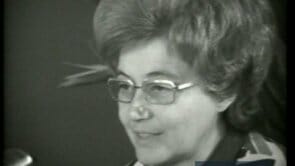
Chiara Lubich: How can I follow Jesus?
 “Dearest Gen, I’m sure that what you’re expecting from me is a formula that sums up everything, that illustrates the truth and gives you the recipe to live a meaningful life. It’s actually something I’m meditating on during these days. I’m totally convinced that the only sure way to reach perfection is to follow the path of suffering embraced out of love. This is how the saints, throughout the centuries, perceived it. The fact is that to those who wished to follow him, Jesus spoke clearly: “Those who wish to become my disciples, let them deny themselves, take up their cross and follow me” (Mk 8:34). “…take up their cross.” Each of us, in order to follow Him, the Perfect One, needs to embrace our own cross, our own sufferings. We all have them, there’s no doubt about it. So let’s get up in the morning with a new heart, despite our human desire to put suffering aside and forget about it. Christians are asked to go that little bit further. Because they are followers of Christ, they know that suffering is precious, that it should be accepted as Jesus accepted the cross, and so they try to embrace it wholeheartedly. What will be the outcome? What will be the fruits? We will be rewarded with patience, purity, meekness, poverty, temperance and so forth. And along with all these virtues, we will attain perfection, the real life. Are you willing to give it a try? Every athlete who aims high must be willing to experience fatigue, sacrifices and struggles. Our goal is Jesus. In order to follow Jesus, we need to appreciate suffering. This is my ardent wish for you, that you may experience how to be worthy of Him.”
“Dearest Gen, I’m sure that what you’re expecting from me is a formula that sums up everything, that illustrates the truth and gives you the recipe to live a meaningful life. It’s actually something I’m meditating on during these days. I’m totally convinced that the only sure way to reach perfection is to follow the path of suffering embraced out of love. This is how the saints, throughout the centuries, perceived it. The fact is that to those who wished to follow him, Jesus spoke clearly: “Those who wish to become my disciples, let them deny themselves, take up their cross and follow me” (Mk 8:34). “…take up their cross.” Each of us, in order to follow Him, the Perfect One, needs to embrace our own cross, our own sufferings. We all have them, there’s no doubt about it. So let’s get up in the morning with a new heart, despite our human desire to put suffering aside and forget about it. Christians are asked to go that little bit further. Because they are followers of Christ, they know that suffering is precious, that it should be accepted as Jesus accepted the cross, and so they try to embrace it wholeheartedly. What will be the outcome? What will be the fruits? We will be rewarded with patience, purity, meekness, poverty, temperance and so forth. And along with all these virtues, we will attain perfection, the real life. Are you willing to give it a try? Every athlete who aims high must be willing to experience fatigue, sacrifices and struggles. Our goal is Jesus. In order to follow Jesus, we need to appreciate suffering. This is my ardent wish for you, that you may experience how to be worthy of Him.”
Chiara Lubich
(translation of the Italian text taken from “Gen,” October-November 1979)

Mumbai: Young Performers in a Musical

6 weeks of preparatory work, 34 actors and an audience of 250 people 36 thousand rupees gathered, equivalent to about €500 which is quite remarkable, considering that the sum will allow 10 adolescents of the city to participate in the 5-day programme to be held in Mumbai.
The Focolare has been in India from 1980. Today there are centres in Mumbai, Bangalore, Goa and New Delhi that promote various activities: Mariapolis, monthly meetings for adults, families and the youth. In various cities –Vasai, Pune, Panjim, Margao, Vasco, Trichy – there are active groups that have adhered to the spirit of the Focolare.
This year, the great goal ahead regards the United World Week (SMU), annual appointment of the Youth for a United World with the objective of diffusing the steps undertaken towards fraternity in various parts of the world.
The SMU 2015 transits through India. As occurred last year in Africa, the event that highlighted the Ubuntu concept, this time the event will focus on the subcontinent, cradle of an enormous variety of ethnic and religious groups that will host the main event of the week in Mumbai, from27 April to1st May, to conclude in Coimbatore, Tamil Nadu (southern India), on 4 May.
Already in 2009 Coimbatore had hosted the “Gen 3 Supercongress”, with adolescents from all over the world, and with the cooperation of the Gandhian movement Shanti Ashram.
As can be imagined there was an enormous load of work for the preparations of all the details- Due to this the entire Focolare Community of the city has decided to roll up their sleeves and support the youth in this initiative.
A first concrete job was to prepare their own musical “The brook in the woods,” staged last 22 February. A story that begins with the message of unity which the Gen4 (the children of the Focolare Movement) sing about. Rehearsals, performed with enthusiasm and commitment by the children, and even with some unexpected problems that came up: the day before musical two of them got sick with high fever and the authors had to change the lyrics!
“My children are so happy!” a mother explained, They made new friends and say that they miss the rehearsals., even more than their schoolmates, because they were so happy to be together.”
“Even if the children are talented in song or dance,” another mother said, “it’s so nice to see these talents used for a beautiful and valuable cause.”
भारत की ओर से आप सभी को बधाई (Bharat ki ora se aap sabhi ko badhai)
Greetings from India!

From Morocco: Travel Diary
 The so-called “Golden Rule” proposed by the Gospel, “Do to others whatever you would have them do to you” (Mt 7.12), is also found in Islam and other religions, and if put at the basis of every relationship generates – as what occurred in these lands – that love which stirs up a fertile “dialogue of life” with every person one meets. It may be a dialogue woven with small gestures, care for the other, respect, and listening. It was due to this concrete love for the other that some Focolare communities were formed in Morocco, and where love and respect have prevailed over differences in culture, traditions and religion.
The so-called “Golden Rule” proposed by the Gospel, “Do to others whatever you would have them do to you” (Mt 7.12), is also found in Islam and other religions, and if put at the basis of every relationship generates – as what occurred in these lands – that love which stirs up a fertile “dialogue of life” with every person one meets. It may be a dialogue woven with small gestures, care for the other, respect, and listening. It was due to this concrete love for the other that some Focolare communities were formed in Morocco, and where love and respect have prevailed over differences in culture, traditions and religion.
Here are some excerpts of the travel diary of the two focolarini during their visit to these communities at the end of January and the first days of February 2015.
«Here we are at Fez, an imperial city that is very proud of its highly spiritual tradition. Numerous students from sub-Saharan Africa come here for their secondary studies. They willingly frequent the French parish and the parish priest, Fr. Matteo, asked us to hold a catechesis on the sacraments for about 20 young people. It was an occasion to have a deep and pleasant exchange of ideas. The parish’s Word of life group gathered about 30 students of medicine, chemistry, informatics plus other five who arrived from Rabat. Lucile recounted how she tries to live the world of life in the public hospital where she works. We had dinner at the convent of the little Sisters of Foucauld.
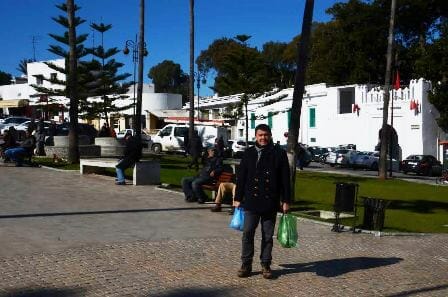 We reached Tangiers to meet a group of 15people, Muslims and Christians who live the spirituality of unity. In the evening we stayed at the home of a couple who consider us their blood brothers. He was transferred to a workplace that takes 24 hours to reach, but this distance from his wife became an occasion to rediscover the positive aspects in one another.
We reached Tangiers to meet a group of 15people, Muslims and Christians who live the spirituality of unity. In the evening we stayed at the home of a couple who consider us their blood brothers. He was transferred to a workplace that takes 24 hours to reach, but this distance from his wife became an occasion to rediscover the positive aspects in one another.
We had breakfast at Mohamed’s. His wife wants to deepen her knowledge of the spirituality of unity. He told us that the guard of the building where he works stopped greeting him ever since he refused to bring him the oil of the Spanish landlady, taking advantage of her absence, as he would have wanted. When he later received a litre of oil from his mother, he offered it to the guard, explaining that this time the oil was his own, and could thus do as he wanted with it. The man, a bit surprised, thanked him and excused himself. They had reconciled. We spent the afternoon with the group of families of the community: Ahmed invited us to stay for the night. We passed the evening with his family, and they offered us a typical dish for dinner.
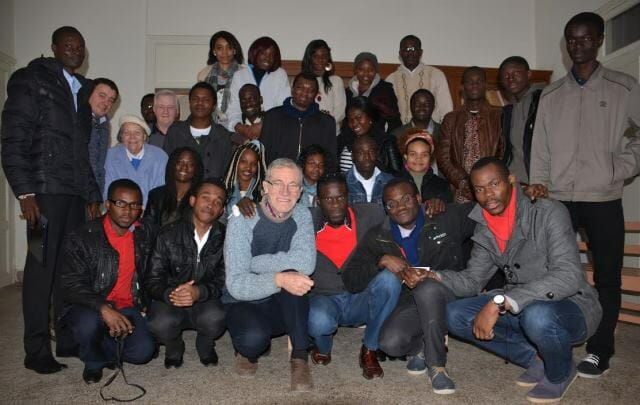 A visit to the small periphery school founded by Fawzia. The district is full of children playing in the muddy and chaotic streets. Houses sprout out everywhere like mushrooms. Felice told us about two children who asked to enroll in her school, even if for some time now, a neighbour stationed himself at her school’s entrance to convince the parents to enroll their children elsewhere. After asking him for some explanations about this, Fawzia continued to love and do her work with excellent scholastic results. Six days later, due to the good reputation the school achieved in the area, there were new enrolments!
A visit to the small periphery school founded by Fawzia. The district is full of children playing in the muddy and chaotic streets. Houses sprout out everywhere like mushrooms. Felice told us about two children who asked to enroll in her school, even if for some time now, a neighbour stationed himself at her school’s entrance to convince the parents to enroll their children elsewhere. After asking him for some explanations about this, Fawzia continued to love and do her work with excellent scholastic results. Six days later, due to the good reputation the school achieved in the area, there were new enrolments!
Journey to Casablanca to visit Susana and the evening with Mohammed and Nadedj in a Japanese restaurant. We talked to them about Loppiano, the recent Mariapolis in Algiers, and the meetings we held. Tomorrow we shall return to Algiers and Italy, respectively, with the joy of having built and strengthened many relationships in unity, enriched by the meeting with these people who have undertaken the commitment to live their daily lives, for a more united world. »
Claude and Ivano (Morocco, January/February 2015)
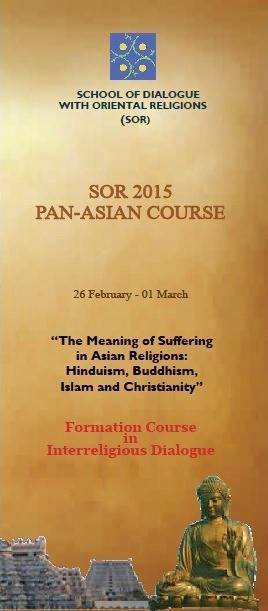
Philippines: The S.O.R. Prophesy
 SOR is the acronym for “School for Oriental Religions.” In his blog Roberto Catalano, co-director of the Focolare Movement’s Centre for Interreligious Dialogue wrote: “It was one of those ideas so typical of the brilliance of Chiara Lubich’s charism.»
SOR is the acronym for “School for Oriental Religions.” In his blog Roberto Catalano, co-director of the Focolare Movement’s Centre for Interreligious Dialogue wrote: “It was one of those ideas so typical of the brilliance of Chiara Lubich’s charism.»
Towards the end of her first trip to Asia in January 1982, the founder of the Focolare launched an idea which seemed almost like a dream. It entailed the startup in Tagaytay City in the Philippines, of a central reference point for the Focolare in Asia, with educational courses in which duly trained Catholics could open a dialogue with the faithful of other religions. Chiara Lubich had come from Japan where she had met Rev. Nikkyo Niwano, founder of the Rissho Kosei-kai, a Buddhist renewal movement, and had spoken before thousands of Buddhists about her Christian experience. The event had a strong impact not only on the Buddhists who had listened to a Catholic woman for the first time in their Sacred Hall in front of the giant statue of Buddha, but also on Chiara. Upon arriving in the Philippines, Asia’s only catholic country, she felt the need to launch the Focolare Movement in that continent, particularly to dialogue with the Buddhists, Muslims and Hindus. But she already saw the need to prepare herself adequately for a difficult task which should not undermine the religion of each one. After confiding her dream to some of the leaders of the Movement, a person offered a house that could host professors and small courses.
And thus the SOR was formed, which through these three decades, has carried out educational courses for Asian Christians on themes regarding the various religions. From 2009 onwards, with the spreading of religious tension and fundamentalism, they decided to deal with specific transversal themes: God in Asian traditions, the commandment of love, the role of the Sacred Scriptures, and this year, the role and meaning of suffering.
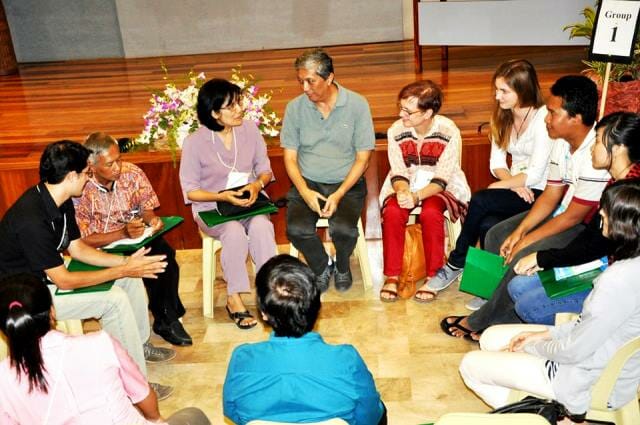 From 26th February to 1st March the Pace Citadel (Tagaytay) hosted about 300 people, mostly from the Philippines but with delegations also from Pakistan, India, Myanmar, Thailand, Vietnam, Hong Kong, Taiwan, Indonesia, Japan and Korea. The majority were mostly Catholics, but among them were three Buddhists, active members of the Focolare from Japan and Thailand. The theme was The meaning of suffering in the Asian religions: Hinduism, Buddhism, Islam and Christianity. The objective was to highlight the value and meaning that the respective religions give to pain in general, whether physical, spiritual, psychic, or caused by natural disasters.
From 26th February to 1st March the Pace Citadel (Tagaytay) hosted about 300 people, mostly from the Philippines but with delegations also from Pakistan, India, Myanmar, Thailand, Vietnam, Hong Kong, Taiwan, Indonesia, Japan and Korea. The majority were mostly Catholics, but among them were three Buddhists, active members of the Focolare from Japan and Thailand. The theme was The meaning of suffering in the Asian religions: Hinduism, Buddhism, Islam and Christianity. The objective was to highlight the value and meaning that the respective religions give to pain in general, whether physical, spiritual, psychic, or caused by natural disasters.
The lecturers of the various sectors, in the presence of three bishops (Roberto Mallari, from S. José, Nueva Ecija, Philippines, Brenan Leahy, from Limerick, Ireland, and Felix Anthony Machado from Vasai, India) and an American professor, expert in Buddhism (Donald Mitchell of Purdue University) connected via skype. The school also offered the occasion to share experiences of dialogue in countries where Christians are but a minority as in India, Thailand, Japan, and Taiwan.
«I came to learn to dialogue with the other religions, but what I discovered is Christianity in its deepest sense, and at the same time its openness to all peoples and creeds.» concluded Catalano. Chiara understood the need to train Christians to dialogue in a continent that is a kaleidoscope of faiths, dialogue which does not diminish or level out, but where all have to be genuine and in meeting the others, discover their own roots.
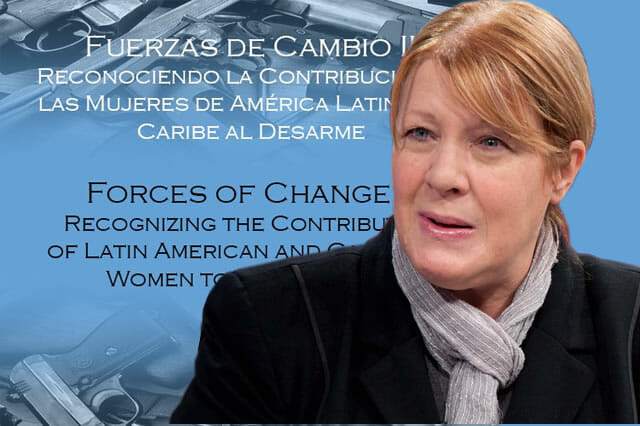
Chiara Lubich and Latin America. Politics, Identity, Design
Latin America is made of unity and diversity and that is what makes it strong as it journeys towards integration. This is undoubtedly an achievement that has not yet been fulfilled with a comm-unity of sentiments, emotions and fraternal bonds based on shared history. This was the prophetic visioin that Chiara Lubich had intuited for this region of the world, and it is towards that vision that we are strenuously marching.
Latin American democracies, even though they little by little consolidated thanks to post-dictatorial processes of democratisation and regional integration, did not in terms of quality, follow a line of progressive improvement.
Latin America has to face a complex and uncertain future. The economic growth of the past few years has not been able to completely uproot poverty, nor did it make a dent in the social inequality or insecurity. It is here that the close link between politics and the idea of universal brotherhood becomes evident. The idea of brotherhood, especially in the testimony and in the words of Chiara Lubich, is related to two central poins of politics. The first is the idea of politics as a collective project of Latin America that reaches beyond our individuality, which implies a gesture of communion, an act of brotherhood since it consists in recognising the other and respecting his or her diversity. Dialogue is the chief means for constructing brotherhood.
The second element is the mid-term perspective. The idea of working for projects and never witnessing the final results, and this is the greatest gesture of greatness in politics. Chiara Lubich has given rise to countless projects not only in Latin America but across the world; mainly, in four areas: the state, social orgainisations, the private sector, and the field of knowledge. Access to basic rights, education and work must return to being the underpinnings of national identity.
The institutions need to be rebuilt not only as buildings, but as environments in which the rights of people are garunteed and exercised and not merely in rhetorical claims. Chiara Lubich also highlighted the ethical dimension of politics that has to do with transparency and is directly linked to the idea of brotherhood. Ethics enables us to become equally indignant in in front of corruption, poverty and inequality. We are certain that Latin America, from the political standpoint, must recuperate a model and economic development plan based on inclusion, garuntees access to human rights in their entirety and supports dignified conditions of life.
We need to regain a trustworthy, predictable and exemplary leadership. Above all, we underscore the idea of exemplarity, which does not discipline with money, or buying off, but with one’s own conduct and behaviour. This examplarity can not only be individual, but should also build collective, participative leadership,
A development project that does not give priority to finding solutions to the living conditions of the most vulnerable, of the poorest sectors of society, is no development project at all. The idea of brotherhood as a value that is linked to the priorities of the public agenda must also be regained. It is imperative that we regain a politics of convictions. This involves the acceptance of diversity.
In Argentina and in the rest of Latin America we need to regain the trust but, first and foremost, a culture of values, of ethical values that are incarnated in the practices and in political thought. And we hold up the principles and testimony of the person whose life we are celebrating today, Chiara Lubich. For Latin America, Chiara combines charism, knowledge, leadership, actioin and destiny. We are in that destiny and in that effort!
By Margarita Stolbizer (1) and Cristina Calvo (2)
(1) Avvocato argentina, deputato nazionale, presidente del Partito Generazione per l’Incontro Nazionale – GEN e candidata del centro-sinistra alla Presidenza 2015 della Repubblica Argentina.
(2) Economista argentina, dirigente del Partito Generazione per l’Incontro Nazionale – GEN)
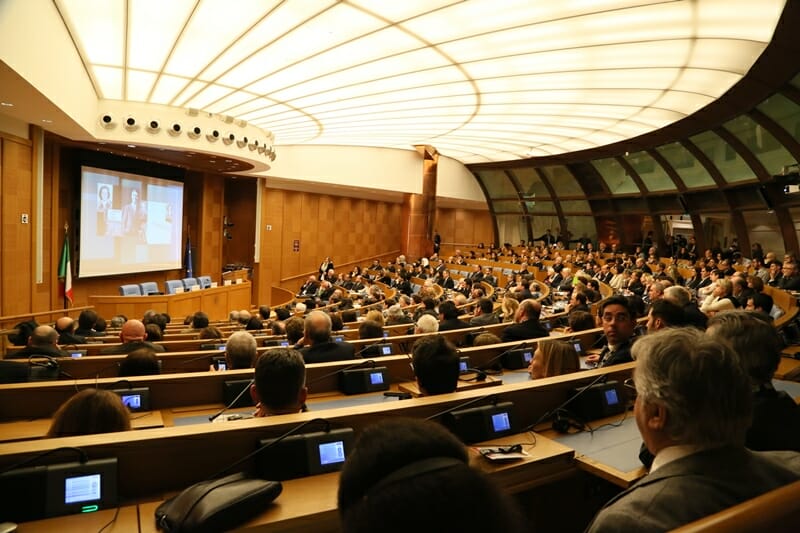
Italy remembers Chiara Lubich
 Is there a “politics that is really worth the trouble” at a time in history moment when politics is totally in crisis, often associated with corruption and special interests? This was discussed during the first of numerous worldwide events marking the 7th anniversary of Chiara Lubich (1920-2008). “Her strong and simple faith,” President of the Italian Republic, Sergio Mattarella, stated: “united to a remarkable ability to read the modern world and accept its challenges, has inspired the life of thousands of people around the world, constantly exhorting national and international institutions to promote values of brotherhood and mutual respect in families, community, and among peoples.”
Is there a “politics that is really worth the trouble” at a time in history moment when politics is totally in crisis, often associated with corruption and special interests? This was discussed during the first of numerous worldwide events marking the 7th anniversary of Chiara Lubich (1920-2008). “Her strong and simple faith,” President of the Italian Republic, Sergio Mattarella, stated: “united to a remarkable ability to read the modern world and accept its challenges, has inspired the life of thousands of people around the world, constantly exhorting national and international institutions to promote values of brotherhood and mutual respect in families, community, and among peoples.”
For the Focolare foundress, entering into politics signified responding to the call: “to the love of loves,” as she put it. A calling to which the response “is above all an act of brotherhood: one acts in favour of something public that regards others, desiring their good as if it were one’s own.” For this reason, said Focolare president Maria Voce, in her opening address to the “Chiara Lubich: Unity and Politics” gathering, “it is absolutely necessary to begin from unity, which is the only thing able to give the correct relevance to freedom and equality.”
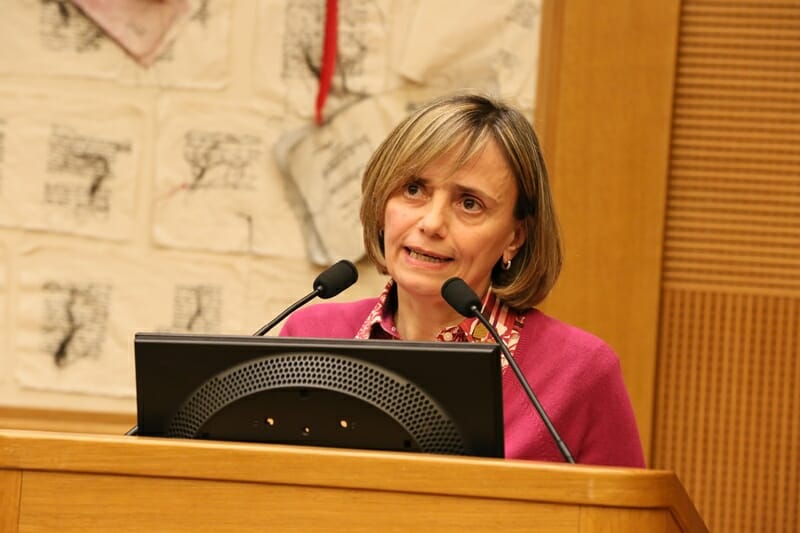 What does it mean to live universal brotherhood in such an environment? Iole Mucciconi, who plays a leadership role at the Presidency of the Council of Ministers, shared his testimony : “It is important to begin each day by committing oneself to do one’s job to the best of one’s ability. I always remember Chiara Lubich’s recommendations for living brotherhood: aim to live an honest life, with moral purity, detachment from money, sharing the joys and sorrows of your sisters and brothers.”
What does it mean to live universal brotherhood in such an environment? Iole Mucciconi, who plays a leadership role at the Presidency of the Council of Ministers, shared his testimony : “It is important to begin each day by committing oneself to do one’s job to the best of one’s ability. I always remember Chiara Lubich’s recommendations for living brotherhood: aim to live an honest life, with moral purity, detachment from money, sharing the joys and sorrows of your sisters and brothers.”
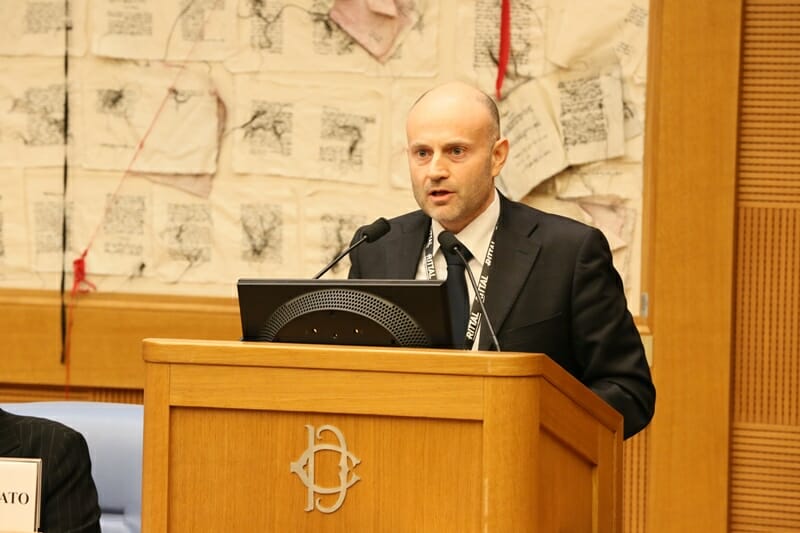 The problem of corruption, which unfortunately pervades the Italian State, was also much felt by Raffaele Scamardi, Commissioner of Public Works in the XII District of Rome at a time when magistrates and law enforcement are trying to dismantle a network of brothels that has entangled the Roman capital. “And yet, a politics in favour of others is still possible: repairing roads, listening to citizens and their need for justice, as well as working with the transparency so as to keep corruption at bay.” A similar point was made by Dieudonné Upira Sunguma, one time Civil Service Minister for the Democratic Republic of Congo, who often had to refuse gifts that were meant to corrupt him.
The problem of corruption, which unfortunately pervades the Italian State, was also much felt by Raffaele Scamardi, Commissioner of Public Works in the XII District of Rome at a time when magistrates and law enforcement are trying to dismantle a network of brothels that has entangled the Roman capital. “And yet, a politics in favour of others is still possible: repairing roads, listening to citizens and their need for justice, as well as working with the transparency so as to keep corruption at bay.” A similar point was made by Dieudonné Upira Sunguma, one time Civil Service Minister for the Democratic Republic of Congo, who often had to refuse gifts that were meant to corrupt him.
Young people of the Focolare the Italian Parliament. The tragedy of Syrian refugees in Jordan and Lebanon interrupted the morning in the parliamentary hall. The words of Lara and George were simple and sharp and hopeful as any twenty year-old’s would be. The war that is tearing Syria apart is a real drama that is being enacted before our very eyes. Abraham, on the other hand, comes from a land torn by drug trafficking: Mexico. One of the features of the 7th anniversary of Chiara Lubich’s death has been the political projects and engagement on the frontiers by young members of the Focolare. Three hundred of these young people are in Rome to attend the events, and to display their projects spread across the planet in favour of dialogue, solidarity, and peace.
When questioned about the role of politics in healing conflicts and protecting human rights, the president of the Chamber of Deputies, Laura Boldrini, was thankful for the young people’s courage in “shortening the distance between institutions and citizenry” and she asked that we “not give in to those who would change the DNA of our people, which is made of hospitality and solidarity.” She encouraged the young people to place themselves at the disposal of public affairs with generosity, in order to influence choices and decisions,” performing a service for the country and never falling flat because of an opposing sides and adversarial approach to politics, because “there is a vision of society contained in the values of Chiara Lubich, and this is politics, this is never removing yourself.”
A discussion followed about the wounds of our own times: the relationship with the Muslim world; wars and epidemics in Africa; natural disasters in Southeast Asia. Political scientist, Pasquale Ferrara, insisted that “dialogue is the weapon of the weak;” and economist Luigino Bruni spoke about huge social disparities, recalling that “the most important happiness isn’t our own, but that of others. And so it is worthwhile to become involved in finding creative solutions to problems, and joining with one another to do new things”
According to Paolo Frizzi, the communitarian sense of the projects that had been presented by the young people of the Focolare, which were monitored by the Universal Brotherhood Observatory and promoted by the United World Project, demonstrates “the anthropological and civil prospective of the charism of unity, which is capable of forging a new humanity capable of sharing projects that even begin from our very differences, in order to build things that will endure and help the world.”
“Fraternity on the way” the title chosen for the event, calls for concrete steps by politicians and citizens together.
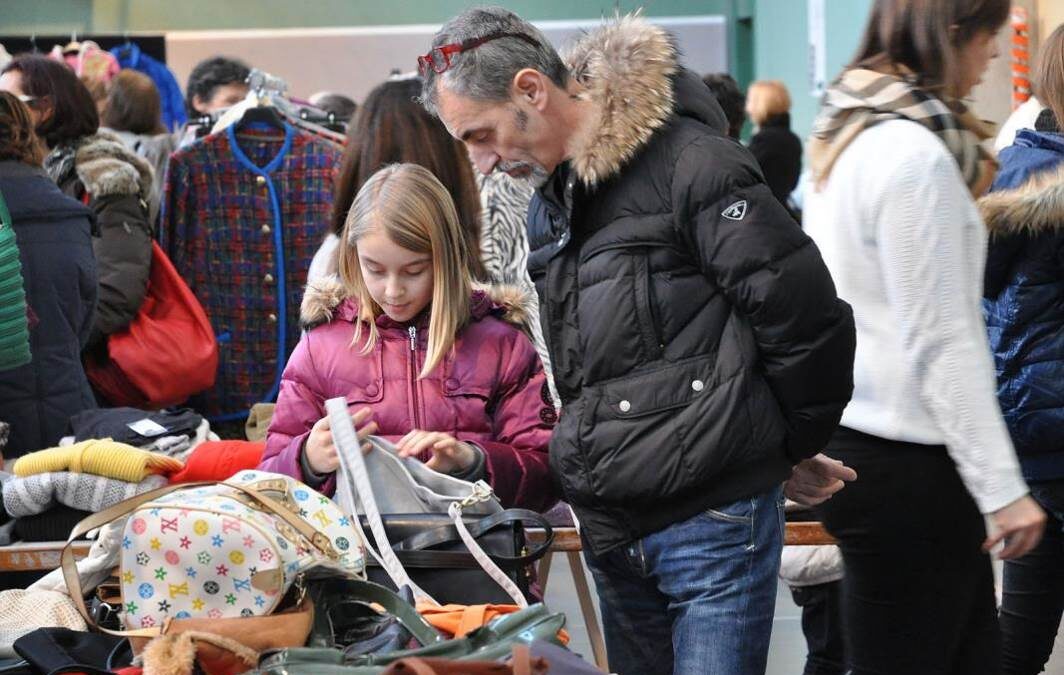
A Permanent Sharing of Goods
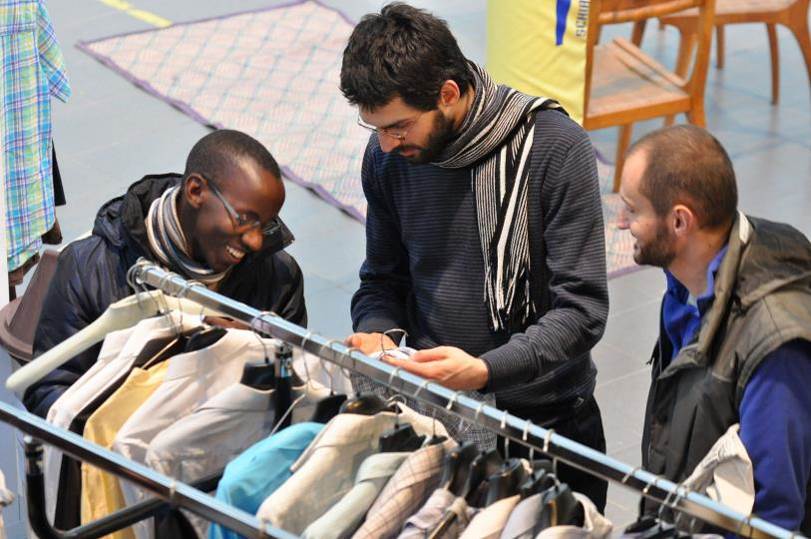 This permanent sharing of goods helps many who are in need during the current economic crisis.” These are the first words of a document describing the Bundle Project which began in May in Loppiano. The carrying of a bundle, or swag, is associated with a vagabond. It was used to hold a few poor possessions and therefore associated with the poor. For Chiara Lubich it signified sharing, giving and redistributing material possessions among the members of the nascent Focolare community of the mid-1040s. This is how a practice was begun of freely depriving oneself of what was excess, or even necessary, in order to share a gift with those in need. That is the origin of the bundle, which has now found a home at the Lionello Bonfanti Business Park in Loppiano, a meeting place between those who have something to share and those who are in need. “Three thousand people have already shown up,” say coordinating team members Roberta Menichetti and Araceli Bigoni,“mostly families who live in the region.” Up until today thousands of clothing items, home furnishings, books, tools, utensils and games as well as intangible items such as time, talents, and availability – have come and gone off with new owners.”
This permanent sharing of goods helps many who are in need during the current economic crisis.” These are the first words of a document describing the Bundle Project which began in May in Loppiano. The carrying of a bundle, or swag, is associated with a vagabond. It was used to hold a few poor possessions and therefore associated with the poor. For Chiara Lubich it signified sharing, giving and redistributing material possessions among the members of the nascent Focolare community of the mid-1040s. This is how a practice was begun of freely depriving oneself of what was excess, or even necessary, in order to share a gift with those in need. That is the origin of the bundle, which has now found a home at the Lionello Bonfanti Business Park in Loppiano, a meeting place between those who have something to share and those who are in need. “Three thousand people have already shown up,” say coordinating team members Roberta Menichetti and Araceli Bigoni,“mostly families who live in the region.” Up until today thousands of clothing items, home furnishings, books, tools, utensils and games as well as intangible items such as time, talents, and availability – have come and gone off with new owners.” 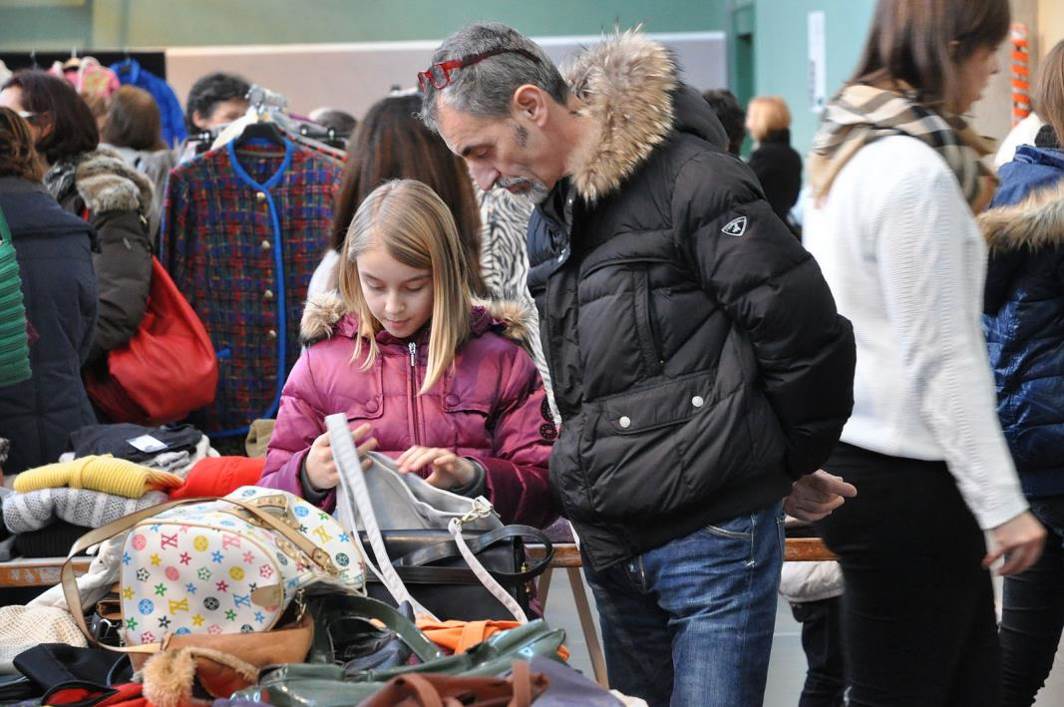 “It’s not by coincidence that the project is hosted in the Lionello Bonfanti Business Park,” reiterates Eva Gullo, President of the EoC Association which administrates the Business Park. “This space is ‘home’ to all the components of the Economy of Communion. It is also dedicated to spreading the ‘culture of giving’, that is, the ability to contribute to the the social welfare beginning from one’s self.” There are many stories of generosity surrounding this project. Like the family that was living in some buildings on the parish grounds of a nearby town. When they were able to move into a small house, they found all the furnishings for their new home here at this opportunity shop. Our network of friends also arranged for the transport and set up of the small house at zero cost. Words like “providence” and “trust” are quite common around here. Like that afternoon when an infant’s crib was found and, just as it was taken away, another request was made for the same type of crib. Not even a half hour later the new crib arrived! The Bundle Project won the “Engaging in Society” award offered by the New Poverty Section of the Catholic Insurance Foundation. Those funds will be used for a more functional layout of the premises. Evening events were begun as a result of the sharing and giving. Formation courses and evening discussions with experts in the field, on topics such as consumerism, relational goods and trust, as well as training courses in economic approaches that are centred on the dignity of the human person. There is a “contributions” box at the entrance for anyone who wishes to leave a few euros for what they have found. The monies collected in the box have been used to pay the insurance bills of some local people and even the basic needs of others. Source: Loppiano online Source: Loppiano permanent sharing of goods project
“It’s not by coincidence that the project is hosted in the Lionello Bonfanti Business Park,” reiterates Eva Gullo, President of the EoC Association which administrates the Business Park. “This space is ‘home’ to all the components of the Economy of Communion. It is also dedicated to spreading the ‘culture of giving’, that is, the ability to contribute to the the social welfare beginning from one’s self.” There are many stories of generosity surrounding this project. Like the family that was living in some buildings on the parish grounds of a nearby town. When they were able to move into a small house, they found all the furnishings for their new home here at this opportunity shop. Our network of friends also arranged for the transport and set up of the small house at zero cost. Words like “providence” and “trust” are quite common around here. Like that afternoon when an infant’s crib was found and, just as it was taken away, another request was made for the same type of crib. Not even a half hour later the new crib arrived! The Bundle Project won the “Engaging in Society” award offered by the New Poverty Section of the Catholic Insurance Foundation. Those funds will be used for a more functional layout of the premises. Evening events were begun as a result of the sharing and giving. Formation courses and evening discussions with experts in the field, on topics such as consumerism, relational goods and trust, as well as training courses in economic approaches that are centred on the dignity of the human person. There is a “contributions” box at the entrance for anyone who wishes to leave a few euros for what they have found. The monies collected in the box have been used to pay the insurance bills of some local people and even the basic needs of others. Source: Loppiano online Source: Loppiano permanent sharing of goods project
Video: Politics for Unity – Making a World of Difference
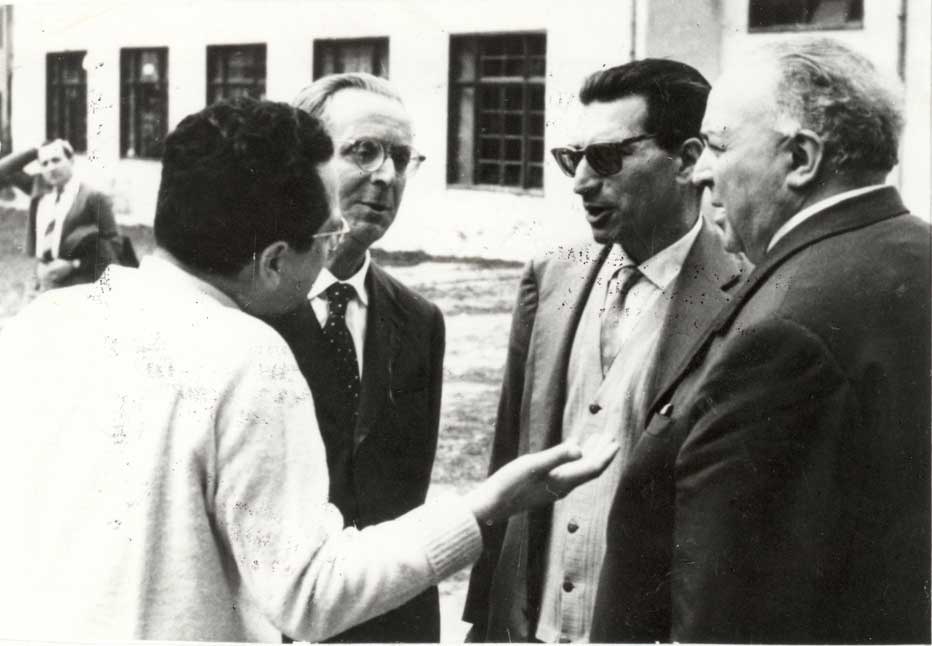
Igino Giordani: From the Italian Parliament to the World

From the Italian Parliament to the world. This part of Igino Giordani’s journey began in the late forties when Igino had reached a rather problematic point in life. To the world he was a Christian intellectual, a brilliant expert on the Fathers of the Church, a writer and Catholic apologist who was always in line with the Church. But he began to experience ‘a certain boredeom of the soul.’ His encounter with Chiara Lubich, foundress of the Focolare Movement, awakened his faith and his love.
Their meeting was extraordinary and so were the circumstances surrounding it. Igino Giordani was a 54 year-old man with 4 grown children. Chiara was a young woman of less than half his age, who was requesting an appointment with him to discuss finding an apartment flat in the city of Rome.
Former member of the Constituent Assembly, Giordani was also a memeber of the Christian Democratic Party, one of those historical members because he was among the first of the 1920s to work for the nascent People’s Party, of Christian inspiration and founded by the priest Luigi Strurzo.
Chiara was a young laywoman and their meeting was taking place well before the Second Vatican Council, at a time when it wasn’t common that a laywoman would be recognised as having some sort of role in the Church.
Yet, despite the large differences between them, that meeting with Chiara completely transformed Giordani and from that moment on he strove to bring the Ideal of Unity into politics. Its announcement took place during a parliamentry session in which ideological differences were quite strong. It was March 16, 1949 when the North Atlantic Treaty was at stake.
“Just when I had known Chiara for a few months,” Giordani recounts, “there was a discussion in the House about the North Atlantic Treaty, and two blocs were formed: one that was headed by America, the United States; and one that was headed by Russia. They were paving the way to make a new war, a masssacre, the definitive war. I remember how very angry we were that night in the House; I was afraid someone was going to pull out a gun and beginshooting; there was much hatred between the two groups.
I had asked to speak and, just before I spoke, a Catholic deputy sat beside me, Mr Pacati. So he said to me: ‘Let’s keep Jesus in our midst, now, as you talk.’ I took the floor. Silence began to fall upon the previous noise and shouting. In the end, the House seemed to have become a church; there was perfect silence as I expressed the ideas that we learn in our Movement; namely, that war serves no good; war is the greatest stupidity; war only serves death. We don’t want war, we want life and life lies in love, in seeking agreement. (. . .)
All of us must react, from whatever part of the country, from whatever political party or faith, because beneath all the tears, beneath all the ugliness accumulated from the war and mud-slinging, it all really comes down to rediscovering the human face, which reflects the face of God.” The parliamentary stenographer concludes his account of that discussion by describing the applause that reached Giordani from all sides of the Chamber.
Soon, numerous parliamentarians joined Igino, desiring to follow the ideal of unity. We name only a few: Gaetano Ambrico, Palmiro Foresi, Tarcisio Pacati, Enrico Roselli, Angelo Salizzoni e Tommaso Sorgi, who became the main biographer of Giordani. With them, Giordani did things that went against the social and political climate of those days. For example, in 1951, together with 40 other parliamentarians – liberals and republicans, social democrats and Christian democrats – he worked for an “Interparliamentary Understanding for the Defense of Peace”
Always moving against the tide, in the midst of the Cold War, in 1949, he and the Socialist, Mr Calosso, promoted the first law on conscientious objection. Imagine the problems that arose when Giordani presented their proposal to the House! But his convictions were like steel: to kill the human being who is made in the image and likeness of God, is to commit deicide.
A new civic consciousness has been born,” Giordani wrote, “one that undoes the divisions of party and faction, current and privileged caste, race, and class. As it spreads, it surpasses national borders. The communitarian impluse that is aroused by Christian love and pushes to the point of incorporating Jesus is a religious and social awakening that, if successful, and we believe it shall be, will change the history humankind.”
Of course, to proclaim the ideals of love and communion in today’s politics seems extremely reckless, but it was even more reckless in Giordani’s times. Yes, Giordani lived within the prophecy; and while taking on the challenges of his times with deep seriousness and commitment, he never became entrapped by them.
He lived the prophecy of a great Ideal, the Ideal of unity, supported by the modern and compelling spirituality of Chiara Lubich who had brought it into the world; and it became the life of Giordani’s politics.
Alberto Lo Presti (Director of the Igino Giordani Centre)
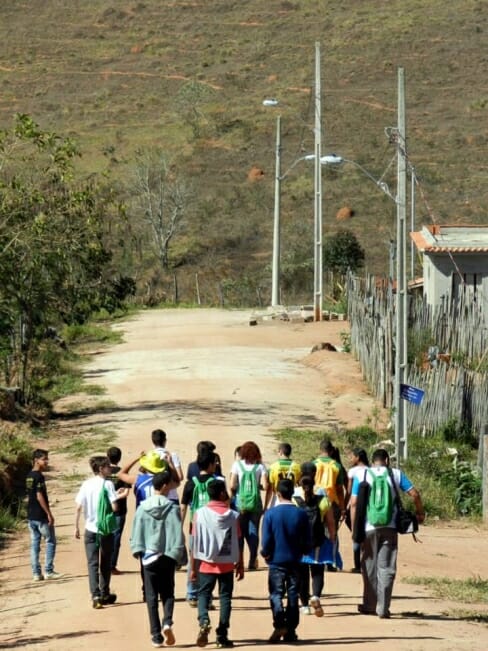
Brazil: Violent neighbourhoods and the power of love
 “Yesterday a man was shot 13 times.” This is what the first person who opened the door of his home to several young people who, on the weekend of February 20-22 always presented themselves to him with a smile. We are on the peripheries of Juiz de Fora, a deprived neighbourhood in the State of Minas Gerais (Brazil). After a few hours that same person said to those young people: “Whereas yesterday we experienced terror, today we feel only love.”
“Yesterday a man was shot 13 times.” This is what the first person who opened the door of his home to several young people who, on the weekend of February 20-22 always presented themselves to him with a smile. We are on the peripheries of Juiz de Fora, a deprived neighbourhood in the State of Minas Gerais (Brazil). After a few hours that same person said to those young people: “Whereas yesterday we experienced terror, today we feel only love.”
Those young people were from the Focolare, Charismatic Renewal, and Shalom Community – parish youth – a hundred in all. In just over a year they have visited ten cities and met some 5,000 families with whom they shared sorrows and joys, courageously announcing to them that God loves them immeasurably. The people expressed joy for their presence: priests are few and do not manage to reach everyone who is in need.
“It all began during World Youth Day 2013 and the meeting of millions of young people with the Pope on Copacabana beach,” the Gen from Minas Gerais recount. “During the final Mass, a girl in our group began to feel the central message of World Youth Day quite strongly: “Go out and make disciples of all the peoples.”
During the return trip to Juiz de Fora, Leticia – that’s the girls name – shared what she had felt with the other Gen and, together they decided that it would be an opportunity to speak with their archbishop, Don Gil Antônio Moreira.
Leticia went to visit him with the encouragement of her friends. The archbishop had already prayed that WYD would not only remain a great memory, but that the intense experience shared by so many young people from around the world might continue in some way.
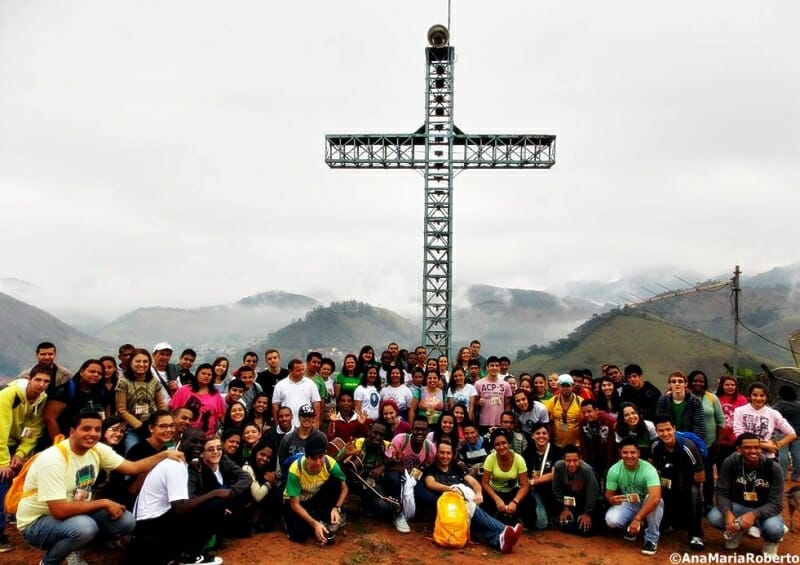 That is how the “Young Continental Missionaries” project began, a name proposed by the archbishop, with the goal of launching young people to reach out to others, to be a living Church that “goes out, together and prepared.” These three words are the three main points of the project: mission, prayer, formation.
That is how the “Young Continental Missionaries” project began, a name proposed by the archbishop, with the goal of launching young people to reach out to others, to be a living Church that “goes out, together and prepared.” These three words are the three main points of the project: mission, prayer, formation.
“It’s just great to go together, young people from different parishes and Movements, but like brothers and sisters,” Vinicius explains, “respecting each other’s diversity in the way of praying and talking in intimacy with God. Also quite important is the dialogue that is generated with several families from other religions.”
“Going into the homes of the people,” Ana Paula adds, “many open their doors to us and invite us in, and we discover the most beautiful treasures, as when we visited an Evangelical Christian who had lost her husband only a few days earlier. After we were together for a while she said: “I can no longer be sad, because he’s with the Father in Heaven.”
Cristiano concludes: “We go into the peripheries of the city never knowing what we will meet but always trusting in God. We feel Him saying to us today: “Love one another as I have loved you.” Then, especially love those who are most in need, even when we are tired or make mistakes. You can always begin again!”
From Mosul to Lyon: a painful exile
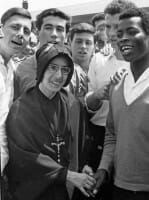
Sr. Benedetta Carnovali
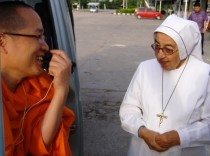 Sister Benedetta, amicably called ‘Sister Bene’ was known to everyone in the Church of Thailand: priests, nuns, bishops and laity from north to south of the country. Several Buddhist monks that visited the focolare regularly also knew her well. Benedetta was a woman who let herself be approached and known, without fear and with gentleness. She knew how to welcome people and you could go to her any time. Any problem, great or small, any need, some good news to share: she wasn’t scandalised by anything, she knew people’s hearts and knew how to love them. One bishop once said of Sister Benedetta that she was “a Sister of silver and gold” because of all the money she was able to find for the poor. When visiting the extreme north of Thailand, you were always obliged to go and ‘have a chat’ with her, as she would say. She enjoyed hearing the news of her ‘great family’ as she loved to call the Movement, and she shared its life with many others. We would often meet people in the Mariapolis to whom she had spoken about the spirituality of unity, or else someone who had passed by the focolare to meet us because they had heard Sister Bene talk about us. In other words, Benedetta was a true spiritual mother who gave much supernatural life to so many people, and many of them attended her funeral along with a large crowd of bishops, priests and laity. The small church of Wien Pa Pao and the adjoining convent where she lived were filled to overflowing.
Sister Benedetta, amicably called ‘Sister Bene’ was known to everyone in the Church of Thailand: priests, nuns, bishops and laity from north to south of the country. Several Buddhist monks that visited the focolare regularly also knew her well. Benedetta was a woman who let herself be approached and known, without fear and with gentleness. She knew how to welcome people and you could go to her any time. Any problem, great or small, any need, some good news to share: she wasn’t scandalised by anything, she knew people’s hearts and knew how to love them. One bishop once said of Sister Benedetta that she was “a Sister of silver and gold” because of all the money she was able to find for the poor. When visiting the extreme north of Thailand, you were always obliged to go and ‘have a chat’ with her, as she would say. She enjoyed hearing the news of her ‘great family’ as she loved to call the Movement, and she shared its life with many others. We would often meet people in the Mariapolis to whom she had spoken about the spirituality of unity, or else someone who had passed by the focolare to meet us because they had heard Sister Bene talk about us. In other words, Benedetta was a true spiritual mother who gave much supernatural life to so many people, and many of them attended her funeral along with a large crowd of bishops, priests and laity. The small church of Wien Pa Pao and the adjoining convent where she lived were filled to overflowing.  Sr Bene, of the Sisters of Charity of the Infant Mary, known to the secular world as Benedetta Carnovali, born in 1925, was a pillar of the Movement and many of the people who belong to the Focolare community of Thailand were personally drawn to the Movement by her (including Buddhists). ‘A real Sister and a true focolarina,’ as she was described by some: an ‘out-of-the-ordinary’ Sister, always on the go and, at the same time, ‘firm’ when personally loving the person next to her. She was a friend who would call you up to wish you a happy birthday, even though her voice became feebler every year, but not her interior strength. Whenever you approached her you were never given the impression that you had disturbed her: it was as if she had been expecting you alone and didn’t have anything else to do but welcome you. But she was quite busy, judging from all the adoptions at a distance which she personally saw to, up until the last days of her life. Sister Bene had met the Focolare’s spirituality of unity from an order priest in 1963, and from that moment spent her life that many in Myanmar – where she was living in that period and then in Thailand when all Religious were expelled by the regime – could know the spirituality and live it. When she was transferred to Thailand, she continued to deepen her friendship with the Focolare. When she went to spend a few days at the focolare, she nourished herself on the words of Chiara Lubich. Like all those who genuinely follow God, Sister Benedetta also encountered her nights, ‘the storm’ as she followed Jesus. She faced them as a true disciple of Jesus, with heroic charity. Deeply united with Vale Ronchetti, one of the first focolarine, she pressed on in the midst of much miscomprehension: ‘How can a nun belong to a movement with so many lay people in it?’ she was often asked; and there were other great and small persecutions that on a human level were completely absurd. Yet, in some mysterious way, God made use of these things to make Sister Benedetta more and more a Sister, more and more a spiritual daughter of Chiara (as Benedetta often said), and an apostle of unity who has no counterpart in the Asian southeast judging from the fruits she bore. She leaves a legacy of love, gentleness, sweetness and strength, loving service to the least: towards the people of the Akha tribe, for example. She leaves us withthat smile so typical of those who have experienced that it is possible to transform suffering in Love and make that Love their reason for living. Sister Benedetta ‘flew” to Heaven at the age of ninety, after listening to the Focolare song that she loved: ‘Solo grazie’. She died consumed but serene, just as she had always lived: in peace because she was certain that the ‘arms’ that had embraced her from her childhood (she was an orphan) and carried her through her life as a Religious, were there waiting for her now on this last stretch of her journey. She was a wonderful woman who shows that it is still possible to become a saint today. Luigi Butori
Sr Bene, of the Sisters of Charity of the Infant Mary, known to the secular world as Benedetta Carnovali, born in 1925, was a pillar of the Movement and many of the people who belong to the Focolare community of Thailand were personally drawn to the Movement by her (including Buddhists). ‘A real Sister and a true focolarina,’ as she was described by some: an ‘out-of-the-ordinary’ Sister, always on the go and, at the same time, ‘firm’ when personally loving the person next to her. She was a friend who would call you up to wish you a happy birthday, even though her voice became feebler every year, but not her interior strength. Whenever you approached her you were never given the impression that you had disturbed her: it was as if she had been expecting you alone and didn’t have anything else to do but welcome you. But she was quite busy, judging from all the adoptions at a distance which she personally saw to, up until the last days of her life. Sister Bene had met the Focolare’s spirituality of unity from an order priest in 1963, and from that moment spent her life that many in Myanmar – where she was living in that period and then in Thailand when all Religious were expelled by the regime – could know the spirituality and live it. When she was transferred to Thailand, she continued to deepen her friendship with the Focolare. When she went to spend a few days at the focolare, she nourished herself on the words of Chiara Lubich. Like all those who genuinely follow God, Sister Benedetta also encountered her nights, ‘the storm’ as she followed Jesus. She faced them as a true disciple of Jesus, with heroic charity. Deeply united with Vale Ronchetti, one of the first focolarine, she pressed on in the midst of much miscomprehension: ‘How can a nun belong to a movement with so many lay people in it?’ she was often asked; and there were other great and small persecutions that on a human level were completely absurd. Yet, in some mysterious way, God made use of these things to make Sister Benedetta more and more a Sister, more and more a spiritual daughter of Chiara (as Benedetta often said), and an apostle of unity who has no counterpart in the Asian southeast judging from the fruits she bore. She leaves a legacy of love, gentleness, sweetness and strength, loving service to the least: towards the people of the Akha tribe, for example. She leaves us withthat smile so typical of those who have experienced that it is possible to transform suffering in Love and make that Love their reason for living. Sister Benedetta ‘flew” to Heaven at the age of ninety, after listening to the Focolare song that she loved: ‘Solo grazie’. She died consumed but serene, just as she had always lived: in peace because she was certain that the ‘arms’ that had embraced her from her childhood (she was an orphan) and carried her through her life as a Religious, were there waiting for her now on this last stretch of her journey. She was a wonderful woman who shows that it is still possible to become a saint today. Luigi Butori
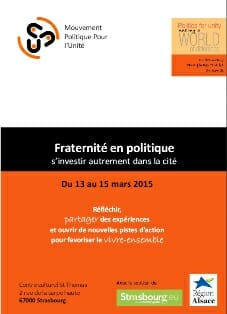
Chiara Lubich: Politics for Unity
 The first event will be held in Rome, Italy, on March 12th at the Aula del Palazzo dei Gruppi Parlimentari in the Italian Parliament. In the morning 300 Focolare youths from around the world – Christian, members of other religions, and some with no formal religious affiliation – will present experiences concerning the socio-political situation in their own lands, and universal brotherhood as a response to current conflicts, during an open dialogue with president of the Chamber of Deputies, the Honourable Laura Boldrini; Secretary General of the European University Institute, Pasquale Ferrara; and Luigino Bruni, Political Economics professor at the LUMSA of Rome. In the afternoon, another 300 people from the fields of politics and public adminstration will take part in a meeting of reflections, testimonies and dialogue in the light of Chiara Lubich’s thought.
The first event will be held in Rome, Italy, on March 12th at the Aula del Palazzo dei Gruppi Parlimentari in the Italian Parliament. In the morning 300 Focolare youths from around the world – Christian, members of other religions, and some with no formal religious affiliation – will present experiences concerning the socio-political situation in their own lands, and universal brotherhood as a response to current conflicts, during an open dialogue with president of the Chamber of Deputies, the Honourable Laura Boldrini; Secretary General of the European University Institute, Pasquale Ferrara; and Luigino Bruni, Political Economics professor at the LUMSA of Rome. In the afternoon, another 300 people from the fields of politics and public adminstration will take part in a meeting of reflections, testimonies and dialogue in the light of Chiara Lubich’s thought.
Strasbourg, March 13-15: A three-day seminar examining fraternity as a political category, especially in relation to cities. Presenters will include Jean-Louis Sanchez, General delegate of ODAS (National Observer of Social Action); Jo Spiegel, Mayor of Kingersheim; and Antonio Baggio, politician and professor at Sophia University Institute, Loppiano, Italy.
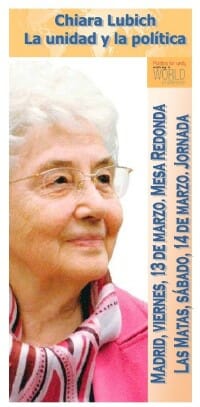 Two events will be held in Spain and Madrid on March 13-14. The first will be held at the Seat of the European Parliament where Chiara Lubich spoke on December 3, 2002 at seminar on The Role of the European Union in global peace and justice. Other thematic topics will be presented the following day at the Mariapolis Centre. One of those topics will be: “Opting for the least.”
Two events will be held in Spain and Madrid on March 13-14. The first will be held at the Seat of the European Parliament where Chiara Lubich spoke on December 3, 2002 at seminar on The Role of the European Union in global peace and justice. Other thematic topics will be presented the following day at the Mariapolis Centre. One of those topics will be: “Opting for the least.”
On March 14th, a meeting will be held at the Seat of Parliament in Seoul, Korea with deputies and people from the field of public administration, to take stock of the march that was begun ten years ago towards a politics of fraternity.
On the same day, in Curitiba, Brazil, deputies, mayors and Brazilian citizens will hold a forum on The thought and political action of Chiara Lubich. Presenters will include the Mayor of the city, Gustavo Fruet; Federal Deputy, Luis Carlos Hauly; Secreatary of Justice and Human Rights for the State of Acre, Nilson Mourão; and the Mayor of Sorocaba, San Paulo, Antônio Carlos Pannunzio.
Meetings will also be held in Canada, Colombia, Honduras, Ireland, Germany, Portugal, Czech Republic, Spain, Tanzania, Hungary, USA, and more.
All the events will be a dialogue focusing on the essential value of unity, which is not ratification, but the result of confrontation. Chiara once stated: “I have a dream. Imagine what the world would be like if not only individuals, but entire peoples, ethnic groups, and states began to practice the Golden Rule: loving the other country as their own.” Her words are proven in the personal lives and political action of people across the world who have embraced her dream.
Focolare president, Maria Voce commented: “The upcoming anniversary will be an opportunity to highlight many positive experiences across the world, in which politicians, administrators, and ordinary citizens are working together for the common good.”
She expressed her hope that “it will be the young people – who often look upon politics with fear or disinterest –that will rediscover politics as a high calling that expands its heart to embrace all people, the most disadvantaged, the most alone, the most in difficulty or marginalized, not only from one’s own country, but from the whole world.” “May your participation in this event,” she concludes, “mark the beginning of a new and more conscious commitment to becoming actively involved in building with many other people of good will, a world that is better, a world that is new.”
Some events can be followed live at: www.politicsforunity.com . There is an online map of events and a summary of texts by Chiara Lubich, chosen by the research committee. The hashtag of the event is: #politics4unity
The 7th anniversary of Chiara’s death (March 14, 2008) will be remembered with a variety of events across the globe. From the biannual Art Event Chiara Lubich at Maracaibo, Venezuela, to the charism of unity through some masterpieces of European art in Cremona, Italy; to the 3rd edition of the Chiara Lubich Memorial Lecture, in Durban, South African Republic. There will be hundreds of Eucharistic Celebrations of Thanksgiving and suffrage for Chiara Lubich, whose Cause of Beatification was officially opened last January 27th.
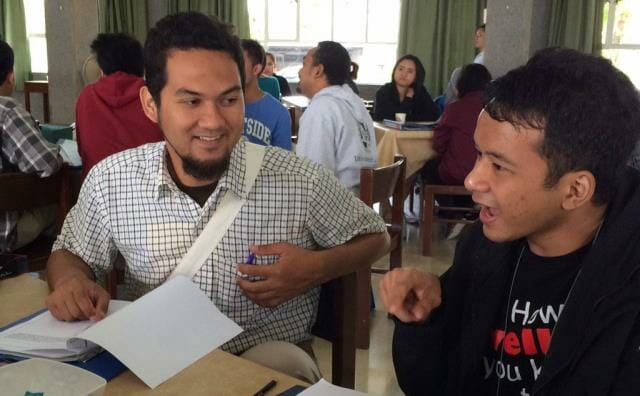
South East Asia: Celebrating Differences and Building Bridges
 “The road to a peaceful world is a long one and the choice to take it necessitates the kind of courage that will not falter in the face of suffering, pain and defeat.” This is how Val Fajardo, a young member of the Focolare Movement, expressed her sentiments at the end of the 5-day conference on United for Peace Project 2015 held at Mariapolis Peace, Tagaytay City.
“The road to a peaceful world is a long one and the choice to take it necessitates the kind of courage that will not falter in the face of suffering, pain and defeat.” This is how Val Fajardo, a young member of the Focolare Movement, expressed her sentiments at the end of the 5-day conference on United for Peace Project 2015 held at Mariapolis Peace, Tagaytay City.
The YSEALI (Young Southeast Asian Leaders Initiative)* United for Peace project brought together 30 youth-leader representatives from Thailand, the Philippines and Indonesia to discuss religious and cultural conflicts in Southeast Asia and share best practices in mitigating conflicts in the ASEAN (Association of South East Asian Nations) region. The delegates were varied – fashion bloggers, presidential advisers, teachers, journalists, students, heads of NGOs, and social workers – but all committed to working for peace. During the conference, the group also discussed and explored ways in which intercultural dialogue can serve as a tool to resolve disputes.
“Project for Peace” – The conference covered relevant issues such as Understanding Conflict, The Paradigm of Fraternity, Unity, Reciprocity, The Power of Collective Action, all essential to the peace building effort. The various workshops proved to be effective in bringing to fore the strength, creativity and commitment of each participant. And, compelled with the dire need of peace in the world, the delegates worked intensely on project proposals to address conflict mitigation and resolution that will be implemented simultaneously in their own countries. The peace projects that the three nation delegates have worked on are, “Peace Attack” by Indonesia; “Youth Leaders for Peace Camp” by Thailand; and “Peace for Real” for the Philippine delegations. All the proposed projects are meant to involve countless young people and adults, each as a protagonist for peace!
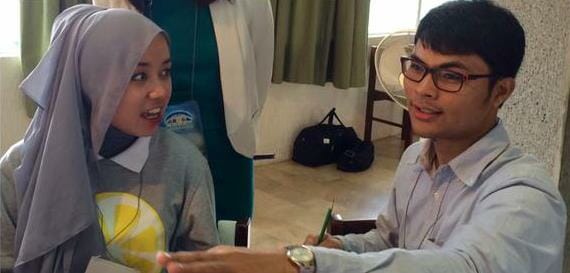 Following the 5-day conference in Tagaytay, three national workshops will take place separately in March in the Philippines, Thailand, and Indonesia involving 150 young leaders.
Following the 5-day conference in Tagaytay, three national workshops will take place separately in March in the Philippines, Thailand, and Indonesia involving 150 young leaders.
At the conclusion of the intense conference, a “Peace Park” was inaugurated and the delegates planted trees in a public school near the Mariapolis Peace. In the middle of the park sits a “Cube of Peace” where various points in building peace are written on each side of the cube, like Treat each person with respect, Share each other’s joys and hurts, Be the first to reach out to the other, Treat others as you want to be treated.
Present during the inauguration were local civil authorities, school heads, educators and students.
The “Peace Park” represented the vision of youth’s United for Peace Project 2015 which is to be united in celebrating differences, building bridges, and bringing about peace, harmony, and unity in the region and in the world. This historical moment bound the hearts and minds of the delegates as they sung together with the youth of the Focolare and all those present the songs Hopes of Peace and Let’s Bridge.
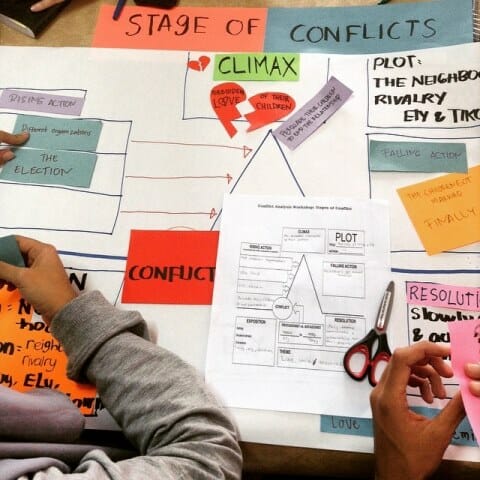 YSEALI gathered young people from different backgrounds, and came out with a solid, efficient and effective project plan to bring peace back to the world. The Focolare Movement has been asked to be a partner in this project until September 2015. A committee – consisting of adult and youth members of the Focolare – was set up in order to design the content of the program and to select suitable resource persons. The Focolare Movement welcomed this opportunity to work with young people and to help them discover that universal brotherhood is the way to resolve conflicts.
YSEALI gathered young people from different backgrounds, and came out with a solid, efficient and effective project plan to bring peace back to the world. The Focolare Movement has been asked to be a partner in this project until September 2015. A committee – consisting of adult and youth members of the Focolare – was set up in order to design the content of the program and to select suitable resource persons. The Focolare Movement welcomed this opportunity to work with young people and to help them discover that universal brotherhood is the way to resolve conflicts.
Nikko Yumul, a member of the Focolare and one the program’s coordinators states: “Young people are at the stage of life where the attraction of working for something much greater than themselves and the will to pursue it are at its height, and where deep, life-long convictions are moulded in their minds and hearts.”
Some impressions shared by the youth: “Building a united world necessarily entails that we go out, as young people, and relate with those who have a vision of the world the same as ours. We are not alone in our efforts. There are others we can share our goals with. Maybe it is about time we involve ourselves with them.”
Source: New City Press Philippines
* Launched in 2013, the Young Southeast Asian Leaders Initiative (YSEALI), which is sponsored by the US Embassy, is a program which aims to strengthen youth leadership development and networking in Southeast Asia. This is done through civic engagement, environment and natural resources management, and entrepreneurship and economic development.
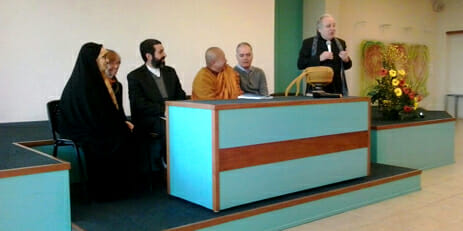
Shiite Students in Loppiano
 “In times of hatred and fear I thank God for having chosen us to encounter a spirituality like that of Chiara Lubich, which is able to make humanity experience peace and the real joy of unity. Here in Loppiano, we are experiencing a foretaste of God’s kingdom.” These were the words of one of the six Iranian students who will stay in Loppiano for a month, and take part in the little town’s daily life, 24 hours round the clock. “It is a new experience for all of us,” affirmed Rita Moussallem who with Roberto Catalano is co-director of the Interreligious Centre of the Focolare, “a prophetic sign and promise of hope which tells us that love will overcome all things.” The students come from the women’s seminary, “Jami’at al-Zahra” in the city of Qum (Iran), at about 200 km from Tehran, the capital. This is an academic centre of excellence for Shiite Islam and is the biggest in the world with about 6,000 female students, a thousand of which come from other countries. Qum is a Sciite sacred city due to the presence of important shrines, visited by thousands of pilgrims every year, and seat of numerous universities, with about 100,000 students. This visit is the fruit of the fraternal relationship and dialogue that started a number of years ago between the Centre for Interreligious Dialogue of the Focolare and Dr. Mohammad Ali Shomali, professor at the international section of the women’s seminary of Qum and founder and director of the International Institute of Islamic Studies (in Qum), and also a member of the councils of various academic institutions. He currently resides in London and guides the Islamic Centre of Great Britain. “Last April, upon the invitation of Dr Shomali, we went with some focolarini to Qum,” Roberto Catalano explained, “to visit various university institutes and to get to know each other better. It was because of this that the concrete possibility for a group of students to visit Loppiano came about, to allow them to personally experience the spirituality of unity.” In Loppiano, Dr Shomali with his wife and the students visited the various schools and work sites, and got to meet Loppiano’s inhabitants, listen to their experiences and immerse themselves in the life and activities of the town. An important moment was Dr Shomali’s encounter with the professors and students of the Sophia University Institute. On referring to the name of the Institute he underlined how the concept of wisdom signifies something more than knowledge: “We can listen to the words of knowledge of many people, but the quality of wisdom can only come from God.” The students will now continue to explore the spirituality of unity and its concrete aspects.
“In times of hatred and fear I thank God for having chosen us to encounter a spirituality like that of Chiara Lubich, which is able to make humanity experience peace and the real joy of unity. Here in Loppiano, we are experiencing a foretaste of God’s kingdom.” These were the words of one of the six Iranian students who will stay in Loppiano for a month, and take part in the little town’s daily life, 24 hours round the clock. “It is a new experience for all of us,” affirmed Rita Moussallem who with Roberto Catalano is co-director of the Interreligious Centre of the Focolare, “a prophetic sign and promise of hope which tells us that love will overcome all things.” The students come from the women’s seminary, “Jami’at al-Zahra” in the city of Qum (Iran), at about 200 km from Tehran, the capital. This is an academic centre of excellence for Shiite Islam and is the biggest in the world with about 6,000 female students, a thousand of which come from other countries. Qum is a Sciite sacred city due to the presence of important shrines, visited by thousands of pilgrims every year, and seat of numerous universities, with about 100,000 students. This visit is the fruit of the fraternal relationship and dialogue that started a number of years ago between the Centre for Interreligious Dialogue of the Focolare and Dr. Mohammad Ali Shomali, professor at the international section of the women’s seminary of Qum and founder and director of the International Institute of Islamic Studies (in Qum), and also a member of the councils of various academic institutions. He currently resides in London and guides the Islamic Centre of Great Britain. “Last April, upon the invitation of Dr Shomali, we went with some focolarini to Qum,” Roberto Catalano explained, “to visit various university institutes and to get to know each other better. It was because of this that the concrete possibility for a group of students to visit Loppiano came about, to allow them to personally experience the spirituality of unity.” In Loppiano, Dr Shomali with his wife and the students visited the various schools and work sites, and got to meet Loppiano’s inhabitants, listen to their experiences and immerse themselves in the life and activities of the town. An important moment was Dr Shomali’s encounter with the professors and students of the Sophia University Institute. On referring to the name of the Institute he underlined how the concept of wisdom signifies something more than knowledge: “We can listen to the words of knowledge of many people, but the quality of wisdom can only come from God.” The students will now continue to explore the spirituality of unity and its concrete aspects.
March 8, 2015: International Women’s Day
 Today, each of us will certainly be remembering the countless women who have been a part of our life beginning with the one who gave us life. Then there were the wives, fiancées, sisters, grandmothers, aunts, baby-sitters, teachers, nuns, catechists, schoolmates, professors, nurses, cashiers, housekeepers, and now astronauts. Today we would like to celebrate women by presenting some thoughts by Focolare president, Maria Voce that were shared in interviews to the Brazilian television network TVNazaré, and Cidade Nova. The interviews are from 2014 when Voce visited Brazil. “The woman’s role in the Church began with Mary, in the first community of Jerusalem where she had a very particular role among the Apostles. Men’s predominant role is traceable throughout the history of the Church, above all in the roles of governance and in the ministerial priesthood which is exclusively for men. This meant that priests identified themselves with the Church hierarchy and women were represented as somehow less important in the Church. Since then an evolution has taken place not only in the Church, but in human society where women have slowly gained important roles. Perhaps in some contexts and cultures they were already acknowledged, but in western culture women had to make their way on their own.” When God created humankind in his own image and likeness he didn’t make only one creature, he made a man and a woman, two different creatures. He created them in this diversity so that they might compliment each another and bear witness, even in the diversity of their roles and functions, to humankind’s God-given filiation and therefore equality. I think this is gradually emerging in politics and society. Never before have we seen so many women among the world figures, taking on important roles as presidents of countries and states. The presence of women in the Church needs to grow, above all the witness of her specific charism; that is, to show that love is more important than governing; that you cannot govern without love.” “A greater positive feminine influence could have important effects not only for the Church but also for society. You immediately notice the presence of a woman in business, for example, in state government, because it creates a contrast and shows up that complimentarity between men and women. Pope Francis is someone who appreciates the contribution of women. The sweetness and tenderness of which he often speaks are important traits that are more feminine than masculine.” “The ability to welcome, support and give are the typical qualities of a mother who brings children into the world and, when the time comes, let’s them go. The skills of attachment and detachment also influences positively on governing. Someone asked me: ‘How can you reconcile love and governance?” I answered that you cannot govern without love. You can’t. Whenever you exercise authority without love, it’s not governance, it’s oppression.”
Today, each of us will certainly be remembering the countless women who have been a part of our life beginning with the one who gave us life. Then there were the wives, fiancées, sisters, grandmothers, aunts, baby-sitters, teachers, nuns, catechists, schoolmates, professors, nurses, cashiers, housekeepers, and now astronauts. Today we would like to celebrate women by presenting some thoughts by Focolare president, Maria Voce that were shared in interviews to the Brazilian television network TVNazaré, and Cidade Nova. The interviews are from 2014 when Voce visited Brazil. “The woman’s role in the Church began with Mary, in the first community of Jerusalem where she had a very particular role among the Apostles. Men’s predominant role is traceable throughout the history of the Church, above all in the roles of governance and in the ministerial priesthood which is exclusively for men. This meant that priests identified themselves with the Church hierarchy and women were represented as somehow less important in the Church. Since then an evolution has taken place not only in the Church, but in human society where women have slowly gained important roles. Perhaps in some contexts and cultures they were already acknowledged, but in western culture women had to make their way on their own.” When God created humankind in his own image and likeness he didn’t make only one creature, he made a man and a woman, two different creatures. He created them in this diversity so that they might compliment each another and bear witness, even in the diversity of their roles and functions, to humankind’s God-given filiation and therefore equality. I think this is gradually emerging in politics and society. Never before have we seen so many women among the world figures, taking on important roles as presidents of countries and states. The presence of women in the Church needs to grow, above all the witness of her specific charism; that is, to show that love is more important than governing; that you cannot govern without love.” “A greater positive feminine influence could have important effects not only for the Church but also for society. You immediately notice the presence of a woman in business, for example, in state government, because it creates a contrast and shows up that complimentarity between men and women. Pope Francis is someone who appreciates the contribution of women. The sweetness and tenderness of which he often speaks are important traits that are more feminine than masculine.” “The ability to welcome, support and give are the typical qualities of a mother who brings children into the world and, when the time comes, let’s them go. The skills of attachment and detachment also influences positively on governing. Someone asked me: ‘How can you reconcile love and governance?” I answered that you cannot govern without love. You can’t. Whenever you exercise authority without love, it’s not governance, it’s oppression.”
Chiara Lubich: “Love the other’s country as one’s own”
[:de]Chiara Lubich: “Das Land des anderen wie das eigene lieben”[:fr]Chiara Lubich : “Aimer la patrie de l’autre comme la sienne”[:zh]盧嘉勒:「愛別人的國家如同自己的國家!」
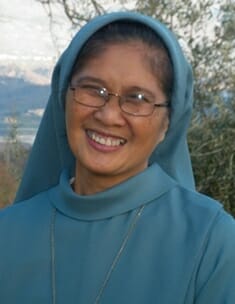
Consecrated life: a prophetic vocation
 “I found myself in the hospital due to a serious accident. It was the first time I ever experienced such pain.” Sr Felicitas from the Philippines recounts . However, it was precisely in the hospital that I experimented God’s love through the people who came to visit me. Some priests brought me the Eucharist which in that moment was everything to me. The chaplain was warm and helpful. Surrounded by so much love I responded in the same way: it was a chain of reciprocity.” Sr Felicitas’ experience stresses the impact of the spirituality of communion as a possible answer to the demands of community apostolic life in the world: “It is an extraordinary coincidence between what the Church and the world ask of consecrated life,” Sr Antonia Moioli, head of the consecrated of the Focolare Movement affirmed. “The seed Chiara has sowed inside us germinates and at times blooms and become a prophetic voice that indicates the way to humanity that has gone astray and becomes an “exterior castle,” irradiating love. “Grow and live in the spirituality of unity,” is what the Prefect for the Congregation of the Institutes of Consecrated Life Associations, Cardinal João Braz de Aviz, asked of the religious men and women members of the Focolare, “because when charisms meet, they become vigorous and the Work of Mary (Focolare Movement) make charism shine, it enlightens them. Words are not needed – he continued – just be witnesses of the Gospel lived; this is the road to change. The specific vocation of the consecrated religious men and women is to open the prophetic roads while testifying to the values of the Kingdom. This is what the Church and humanity expects today, and to fulfil this we must return to our own charisms and liven it up.” Giuseppe Zanghì (Peppuccio), philosopher and scholar, regards Chiara Lubich as a bring of a light that has created the conditions for a new culture, that flowed from Jesus Forsaken: He is the God of contemporary man. «His reflections – again Sr Antonia explains – spurs us to be a light in the darkness, sentinels that announce the dawn. Will we be able to fulfill the prophetic vocation typical of consecrated life? In the past, monasteries and communities were the prestigious centres of culture and spirituality ; can we still look to this ancient-and-new reality as a challenge?” “Right here today we have found a treasure chest,” Maria Voce, Focolare President affirmed, “and together we can give this treasure to the entire Church and all the world, which, in order to believe in Christ, needs to see how Christians love one another. These riches God has given us, making of us his family, is for the benefit of humanity. This is the sense of that “going all out” Pope Francis continues to underline., and the universal brotherhood of humanity begins with the fraternity among us, in every convent, every community, every congregation and order and in the entire Church.” The Congress of the consecrated opens out to a future to be built, not alone, but together with many others, that makes of us the testimonials to a love that defies all differences.
“I found myself in the hospital due to a serious accident. It was the first time I ever experienced such pain.” Sr Felicitas from the Philippines recounts . However, it was precisely in the hospital that I experimented God’s love through the people who came to visit me. Some priests brought me the Eucharist which in that moment was everything to me. The chaplain was warm and helpful. Surrounded by so much love I responded in the same way: it was a chain of reciprocity.” Sr Felicitas’ experience stresses the impact of the spirituality of communion as a possible answer to the demands of community apostolic life in the world: “It is an extraordinary coincidence between what the Church and the world ask of consecrated life,” Sr Antonia Moioli, head of the consecrated of the Focolare Movement affirmed. “The seed Chiara has sowed inside us germinates and at times blooms and become a prophetic voice that indicates the way to humanity that has gone astray and becomes an “exterior castle,” irradiating love. “Grow and live in the spirituality of unity,” is what the Prefect for the Congregation of the Institutes of Consecrated Life Associations, Cardinal João Braz de Aviz, asked of the religious men and women members of the Focolare, “because when charisms meet, they become vigorous and the Work of Mary (Focolare Movement) make charism shine, it enlightens them. Words are not needed – he continued – just be witnesses of the Gospel lived; this is the road to change. The specific vocation of the consecrated religious men and women is to open the prophetic roads while testifying to the values of the Kingdom. This is what the Church and humanity expects today, and to fulfil this we must return to our own charisms and liven it up.” Giuseppe Zanghì (Peppuccio), philosopher and scholar, regards Chiara Lubich as a bring of a light that has created the conditions for a new culture, that flowed from Jesus Forsaken: He is the God of contemporary man. «His reflections – again Sr Antonia explains – spurs us to be a light in the darkness, sentinels that announce the dawn. Will we be able to fulfill the prophetic vocation typical of consecrated life? In the past, monasteries and communities were the prestigious centres of culture and spirituality ; can we still look to this ancient-and-new reality as a challenge?” “Right here today we have found a treasure chest,” Maria Voce, Focolare President affirmed, “and together we can give this treasure to the entire Church and all the world, which, in order to believe in Christ, needs to see how Christians love one another. These riches God has given us, making of us his family, is for the benefit of humanity. This is the sense of that “going all out” Pope Francis continues to underline., and the universal brotherhood of humanity begins with the fraternity among us, in every convent, every community, every congregation and order and in the entire Church.” The Congress of the consecrated opens out to a future to be built, not alone, but together with many others, that makes of us the testimonials to a love that defies all differences.
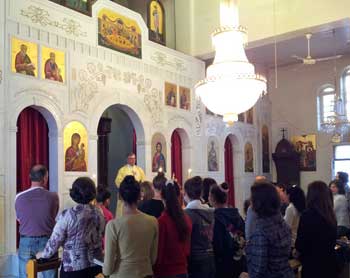
War in Syria: Is it still making news?

Intensifying our prayers for peace
At the general audience of March 1, 2015, Pope Francis remarked that “Dramatic stories continue to arrive from Syria and Iraq concerning violence, kidnappings and damaging harassment of Christians and other groups. We wish to assure all those who are caught in those situations that we have not forgotten them, but are near to them with our insistent prayers that the intolerable brutality of which they have been victim may soon come to a halt.” The vast crowd that filled St Peter’s Square paused for a moment of deep prayer, as it remembered the two tortured countries of the Middle East.
From Syria they write: “Many surrendered to the idea that the war is a fact of life and that the hundreds of people who die every day no longer make news. The people have reached the limit of endurance and the winter is long and cold, without diesel fuel, electricity and water. The mortar fire continues to sow death in the big cities, while battles continue on the peripheries and in villages. The economy is on the ground and many families are unemployed; and legal outlets from the country are nearly closed. One Syrian bishop said that our people are humiliated and have had their human dignity insulted.”
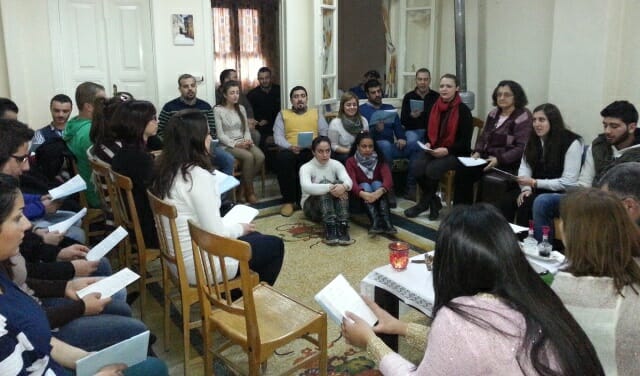 Despite the evil that is rampant in Syria, the local Focolare community continues to believe “that there can be a better future here. We continue to find strength in living the Gospel, even with courageous witness.” They know they are not alone but belong to a great family around the world that is continuing to pray for them and work for peace. “Although tiredness, after four years of war and the prospect of a dark future for the country weighs on us.”
Despite the evil that is rampant in Syria, the local Focolare community continues to believe “that there can be a better future here. We continue to find strength in living the Gospel, even with courageous witness.” They know they are not alone but belong to a great family around the world that is continuing to pray for them and work for peace. “Although tiredness, after four years of war and the prospect of a dark future for the country weighs on us.”
This was the Aleppo to which the members of the men’s focolare returned on February 23, 2015. They write: “After three months away, we’ve returned to set up our Focolare Centre in Aleppo, together with Sami our married focolarino who lives with his family on the coast. He comes to stay with us once a month. Staying here is a challenge, for we are aware that Jesus in our midst, through mutual love, is the only source of hope and comfort for the local community and the people around us.”
“During our journey,” they conclude, “we stopped for a week in Damascus, at the women’s focolare. They have supported the community in our absence. Then we spent a week in the community of Kfarbo in the middle of the country. There was a lot of joy over our return: now the family is complete! We are all very grateful for the prayers of so many people around the world who are supporting us in this hard trial.”
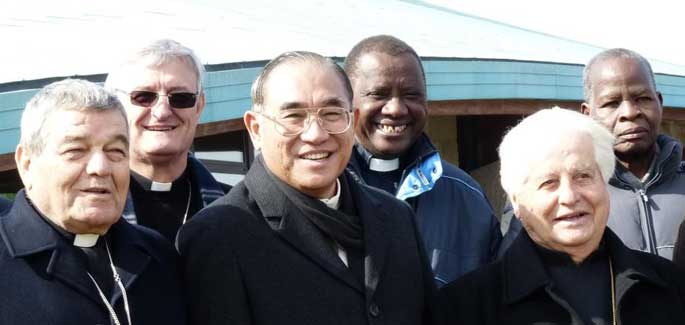
Pope Francis to the Bishop-Friends of the Focolare
The Bishop does not gather the population around himself as a person or his ideas, but around Christ, Pope Francis said in the meeting with the Bishop-Friends of the Movement. The charism of unity which is the Focolare Movement’s main characteristic – the Pope said – “is strongly anchored to the Eucharist, which confers it a Christian and ecclesiastic feature.”
“Without the Eucharist unity would lose its attraction pole and be just a sentiment and a solely human, psychological and sociological dynamics. Instead the Eucharist ensures that all centres around Christ, his Spirit, it is the Holy Spirit that guides our steps and our initiatives towards encounter and communion.”
The fundamental service of the bishops – Pope Francis went on – is to gather “the communities around the Eucharist, at the dual banquet of the Word and the Bread of life.”
“The Bishop is a principle of unity in the Church but this would not occur without the Eucharist: the Bishop does not gather the population around himself as a person, or his own ideas, but around Christ present in his Word and in the Sacrament of his Body and Blood.”
“In this way the Bishop, one with Christ– the Pope affirmed – becomes a living Gospel, become Bread shared to give life to many with his preaching and testimony. Whoever partakes of Christ the Living bread with faith is spurred by his love to lay down his life for his brothers, and go out, towards an encounter with those who are outcast and despised.”
And then the Pope thanked especially the bishops who came from “the bloodstained lands of Syria and Iraq, and also from Ukraine.”
 “In the sufferings you are undergoing with your people you experience the strength that comes from Jesus Eucharist, the strength to go ahead in faith and hope. In our daily celebrations of the Mass we are one with you, we pray for you and offer the Sacrifice of Christ, which also strengthens and gives a meaning to the many initiatives of solidarity for the benefit of your Churches.”
“In the sufferings you are undergoing with your people you experience the strength that comes from Jesus Eucharist, the strength to go ahead in faith and hope. In our daily celebrations of the Mass we are one with you, we pray for you and offer the Sacrifice of Christ, which also strengthens and gives a meaning to the many initiatives of solidarity for the benefit of your Churches.”
Pope Francis concluded by encouraging the Bishop-Friends of the Focolare to continue with their commitment to enhance ecumenism and interreligious dialogue” and thanked them for contributing to “greater communion between the various ecclesiastical movements.”
Francis Xavier Kriengsak Kovithavanij, the new Cardinal who is the Archbishop of Bangkok and the moderator of the Bishops’ meeting, addressed Pope Francis on behalf of the group. Among other things he said: «We feel that in today’s world, we and our particular churches must be able to listen and to dialogue. It is not just by accident that God has put us in contact with people who suffer from the wounds of many evils. Even today, we bring before you the signs of so many tears, cries of despair and search signals which we carry in our hearts».
He continued: “When facing today’s enormous challenges, we feel small and at times helpless, but we confide in a greater love that called us and loved us so much that gave us the divine measure of love, which is ready to give one’s life for others, and, if necessary, to die for them. This is what our brother, Bishop-friend of Libya, Mons. Innocenzio Martinelli is doing;he is not here with us because he wants to remain there despite the real danger of death. This was the step taken by Mor Gregorios Yohanna Ibrahim, Syrian Orthodox and Metropolitan Boulos Yazigi, Greek Orthodox of the Patriarchate of Antioch, two Bishop-friends of Syria, seized about two years ago and almost forgotten by the public».
Pope Francis greeted Maria Voce, president of the Focolare Movement, who was present with the Bishops at Paul VI Audience Hall. Having just returned from a meeting in Germany with 150 representatives of evangelical movements, she brought to the Pope their greetings and their hope in a common commitment towards unity. The Pope thanked her saying: «Good! The ecumenical work you do is very important».
Pope Francis had before him a glimpse of the world because these Bishops come from 35 countries; from Asia (Thailand, Myanmar, India), from the Middle East ( Lebanon, Syria, Iraq, Algeria), from Africa (Cameroon, Ethiopia, Uganda, Madagascar, Tanzania, South Africa), from the Americas (USA, Haiti, Panama, Ecuador, Brazil, Uruguay), from Europe (Germany, Spain, France, Italy, Luxembourg, Netherlands, Austria, Switzerland, Czech Rep., Rep. Moldova, Romania, Slovenia, Slovakia, Ukraine).
The president of the Focolare Movement, Maria Voce and the co-president Jesús Morán will also intervene during the Bishops’ meeting that is currently taking place (3-6 March 2015) at Castelgandolfo. They will also listen to experiences and projects about pastoral work that promotes more attention to the relationship between bishops and the faithful, commitment towards unity between various movements that exist both in the Catholic Church and in other Churches, and dialogue with other Christians and with different religions.
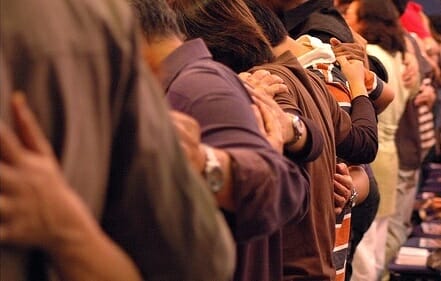
Living the Gospel:Taking the first step
“Our son, Matteo, was born with a serious respiratory problem, and we spent the first six months of his life in hospital. How can I describe the anguish we experienced during his respiratory crises, or when doctors were unable come up with the therapy that would meet his needs? Yet, we never doubted the Father’s love; thanks also to the support we received from our families and many friends. Overcoming the temptation of enclosing ourselves in our problem, we were enabled to share in the worries of others with children recovering in hospital, confronting the mystery of faith and suffering with them. Matteo is much better now. Recently, we were invited by the hospital department to belong to a group that reflects on issues related to young patients (the voice of the parents is important when it comes to difficult decisions). We accepted the invitation even though it would mean reliving our own pain, in the pain of others.”
M and S, Italy
The Cube of Love
“Mum and Dad don’t really get along. They often fight. Sometimes she doesn’t give in, and he becomes angry. To help them, even though I’m the smallest, the idea came to me of doing something at home that we do in school: learning how to love one another by rolling a cardboard cube with different phrases written on its six sides. I asked Mum and Dad to play it with me. We each had to take a piece of paper, copy down and do what they had read. If they didn’t do it, I would keep score of it in my score book. Mum got the side that said: “Love everyone,” and Dad got “Love your enemies.” By playing with me they had began to love one another again.”
D H, Philippines
An unexpected child
“Our daughter, Solange, a nurse at a clinic in Rio de Janeiro, was one day approached by a girl who was insisting on being admitted to hospital at least until she gave birth. She had neither documents nor money to pay for hospital care. Solange turned to the clinic director and other doctors, and finally the girl was admitted under the responsibility of my daughter. Everything went fine. A beautiful baby girl was born, Barbara. But a few days later, the girl disappeared leaving the newborn behind. The director and doctors got angry with Solange, to which my husband and I – even though we’re not so young anymore – offered to welcome Barbara as our fifth daughter, fifteen years after the birth of our youngest.”
A – Brazil

Loppiano: “Towards an economy for the common good”
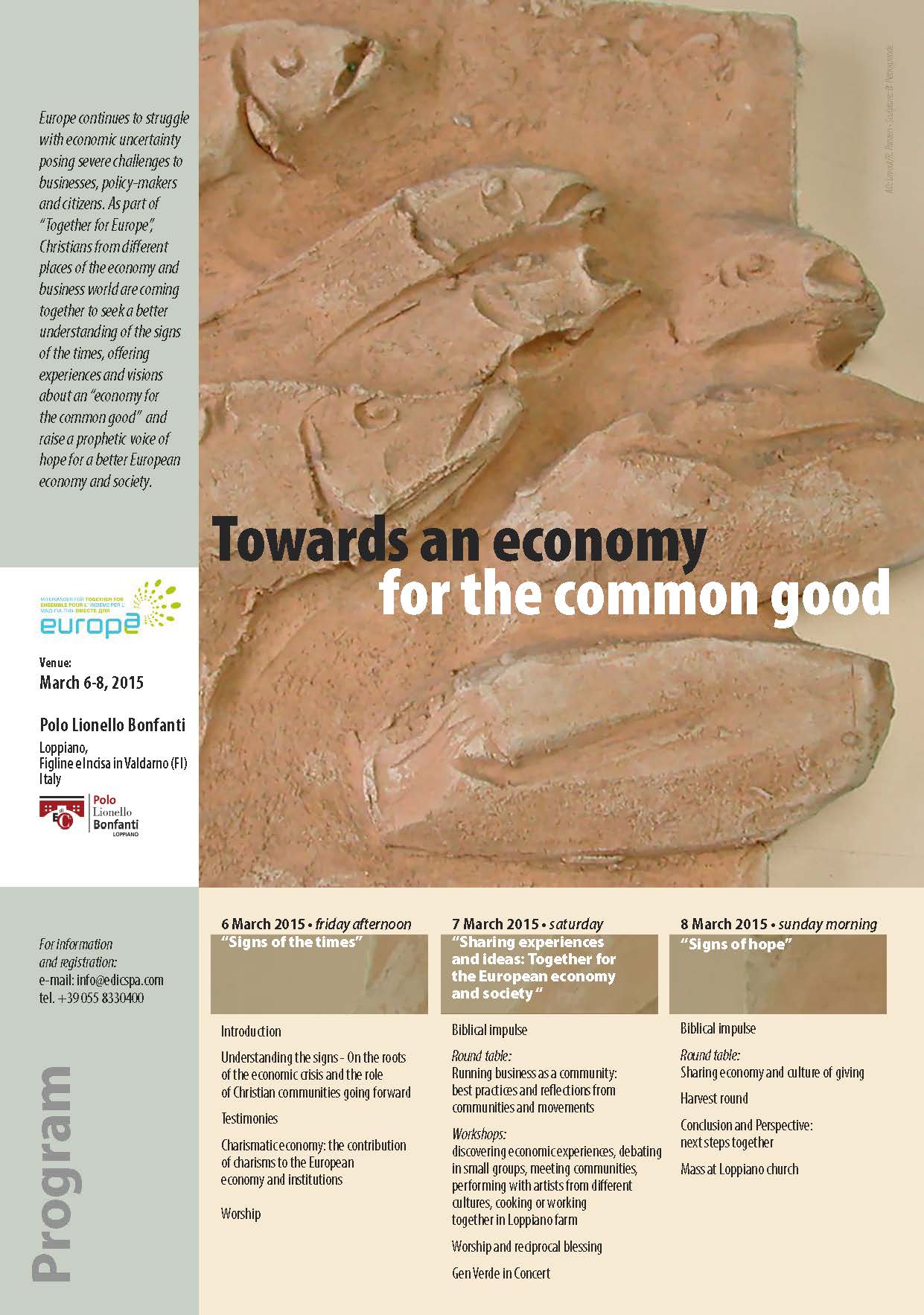 Europe continues to battle with economic uncertainty which is a real challenge for all enterprises, experts of economic policies and citizens. Christians from various economic fields and the entrepreneurial world will meet in Loppiano (close to Florence) from 6 to 8 March, to share their experiences and outlooks, so as to contribute to the diffusion of a prophetic message of hope.
Europe continues to battle with economic uncertainty which is a real challenge for all enterprises, experts of economic policies and citizens. Christians from various economic fields and the entrepreneurial world will meet in Loppiano (close to Florence) from 6 to 8 March, to share their experiences and outlooks, so as to contribute to the diffusion of a prophetic message of hope.
«Up to now, in Europe, only the institutions have stated their opinions – affirmed Prof. Luigino Bruni. Our dream is that in the ministries for economy, there may also be Franciscans, Focolarini and people who have chosen to stand by the side of the poorest of peoples… There is need for gratuitousness. Over the last ten years these voices have been silenced. An economy without a heart, without charisms that are able to include also the poor, is an economy without a future. What do all Christian movements have to say today, about the economic plan? At the start of the millennium we set out on our journey, “Together for Europe,” with Chiara Lubich. After 15 years of working together at the level of gaining knowledge, it seems that this journey has become a working together for a different kind of economy, a different type of politics. The time has come for us to voice out our opinions. »
The idea of a convention was conceived on November 2012 in Munich, Bavaria, during the Together for Europe meeting. On that occasion, economy experts of some movements and communities of different countries and churches, made an appointment to hold a session for in-depth reflection, with the aim of giving a specific contribution in the field of economy, starting off from their own charisms.
The programme provided for a moment of reflection on the “signs of the times” we are all witnessing, with the sharing of experiences. The moments of reflection on the “signs of hope” were shared in a round table on the economy of sharing and “culture of giving.” The programme also included an experimentation work lab «of manual and not only mental work,» at the “Loppiano Prima Farm,” and an artistic workshop with the Gen Verde music group. The convention, entitled “Towards an economy for the common good” will be laid out in three work groups regarding poverty, enterprises and institutions. An expo will be installed with the works produced by each community.
Not only banks, markets and finance will be involved – Bruni continues – but contributions from the lower sectors of society, starting from from solidarity, so as to allow the involvement of the poor and excluded people. We shall attempt to pursue this path with some Catholics and Evangelicals (John XXIII, Schönstatt, Focolare, Ymca and Vineyard) acting as the preparatory committee, and with the specific aim of allowing the charisms to voice their opinions on the economic crisis Europe is undergoing.». The idea, therefore, is to give a perspective to Europe starting from the economy of reciprocity and as a gift and not only in terms of interests and profits. It will be an economy which arises from cooperatives, and the social and civic sectors.
«Europe’s economy –Prof. Bruni explains – was also created by Saints Benedict, Dominic and Francis (if we considered the the institution of the Pawnshops), not to mention the social charisms that invented the schools, hospitals, simultaneously with the world of commerce which progressed with the enterprises and the merchants. The new Europe will arise from this crisis, and to achieve a good Europe, it still needs today, the contribution of the charisms, modern charisms that speak the language of economy: there is a wealth of life in the European Christian movements that still have something to say that differs from that of the European Central Bank. We shall start with modesty, but our objective is to go to Brussels to address the institutions with our specific contribution. »

Politics: active and not passive citizens
 A municipal counselor, group leader of the majority party of Mar del Plata, Argentina, found herself face to face with two young people who introduced themselves as activists of the opposition. Curious, she received them in her office. The two simply explained that they wanted to assure her of their respect for her opinions, but that they wanted to exercise their role in the opposing party in a constructive manner. Surprised by the rather unusual declaration she asked them where they had learned to carry out this type of politics. The two explained that they were students of a school of the Political Movement for Unity Politico (MPPU). A short time later, also the municipality counselor started to attend the MPPU’s local school of politics.
A municipal counselor, group leader of the majority party of Mar del Plata, Argentina, found herself face to face with two young people who introduced themselves as activists of the opposition. Curious, she received them in her office. The two simply explained that they wanted to assure her of their respect for her opinions, but that they wanted to exercise their role in the opposing party in a constructive manner. Surprised by the rather unusual declaration she asked them where they had learned to carry out this type of politics. The two explained that they were students of a school of the Political Movement for Unity Politico (MPPU). A short time later, also the municipality counselor started to attend the MPPU’s local school of politics.
Chiara Lubich may not have come to know about this tiny episode, amid the thousands of incidents many other MPPU members of many countries could recount. And yet, we could surely consider this as a typical effect of the encounter with the ideas and spirit of the charism of unity Chiara had spread and which has taken as its paradigm, the ideal of universal brotherhood. In what way? By preparing citizens, and thus civil society, sensitive to the life of the political community they are part of, in short, through active citizenship.
Going back the Movement’s history, in the “Mariapolis” held in Primiero Valley in summer 1959, for two months. At different moments, a total number of 12,000 people from 27 countries of the five continents had spent some time in the Mariapolis, and in those days, Chiara had affirmed: “These are the times in which all peoples will have to cross their confines to look beyond, and the time has come for us to love the country of others as our very own.” Given the fact that the effects of the tremendous world conflict were still visible, those were ardent words that inspired new relationships between peoples and governments. Even today, loving the other’s country as one’s own is a daring idea, a guideline for action, starting from the weakest and the poorest.
Philadelphia (USA), 2003. During “Interdependence Day” that took place in that city, Chiara wrote in her message: “From different points of the earth, today we hear the cries of abandonment of millions of refugees, millions of starving people, millions of exploited and unemployed people who are excluded and “cut off” from the political body. It is this division, and not only the hardships and economic difficulties, that makes them even poorer, and augments their desperation. Politics will not reach its aim if it does not respond to its vocation, and for as long as it will not rebuild unity and heal the open wounds in humanity’s political body. »But to reach this goal, fraternity is necessary, because «liberty and equality, in face of the present challenges and the future of humanity alone are not sufficient (…). For as long as fraternity will not be an integral part of the political plans and processes in every region of the world, equality and liberty will always be incomplete and unstable.»
Chiara’s ideas are not just mere words, but the fruit of experience of a Movement which, in developing, extended its gaze over the world, and made the “joys and hopes, the sadness and the anguish of man today, its very own.”
It is therefore civil society, founded on the citizens driven by the spirit of fraternity, that will give the extents and contents to liberty, equality and fraternity, the three pillars of our civilization.
Testo integrale: Politics for Unity
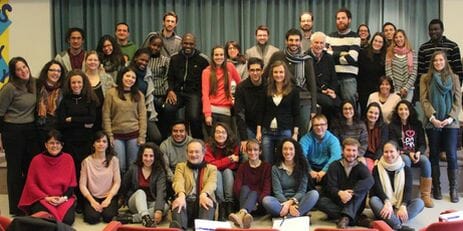
Sophia University in Trent: Creativity and Innovation
 The experiment was the choice of a mountain setting for the inter-disciplinary and inter-cultural academic event, according to the teaching and learning methodology typical of IUS. This sparked up the idea of holding the first International Winter School of the Sophia University Institute (IUS), that ended on 15 February, organised with the patronage of the Autonomous Province of Trent and the Rural Banks and Cooperation Federation of Trent. The participants from 18 countries who were hosted at the Mariapolis Center named after Chiara Lubich, in her native land, felt really privileged to be so warmly welcomed by the city of Trent. In a situation in which change is guided by technology and political-economic challenges, the workshop focused on understanding creativity and innovation in the light of the “culture of unity” and the added value it offers. For example, making room for and recognising diversity also when this may be a potential cause of conflict. Besides the lessons in the classroom and work group sessions as planned, before and after the excursions and sports activities, the reflections on sports and bodily expressions offered an ulterior and original interpretation of the themes proposed. Particularly effective was the soiree opened to the city «Captain, my captain,» conducted by Paolo Crepaz of Sportmeet, in a dialogue with 3 captains of top professional sports teams. The dialogue also covered the queries and the resources of our time, that urge us to think big and act consequently. At the end, some participants also gave their personal impressions. F.S., Business Communications graduate, and a doctorate on Microcredit and Microfinance said: “I will not forget two things I learned: the methodology of interdisciplinarity – we cannot think of know-how as isolated fragments– and the need to build relationships based on deep knowledge of ourselves and our own disciplines, in order to go towards the other and be enriched by the other’s discipline. I will try to bring ahead the dynamics of this workshop – listening, reciprocity, sharing ,– in everyday life.” G.F. a Social Sciences student: “The novelty lies in the effort you spoke about, of focusing on the relationship between sports and the culture of unity, in the perspective of an integral vision of the person and society: we still have a lot more to discovery.” M.P. a Natural Sciences graduate: “I knew nothing about Sophia… I think it is a worthy answer to our times. In the same way as in the ecosystem, where all is interconnected, I believe that whatever we do has its impact without exclusions and at all latitudes. We are all called to dialogue, fully aware of the consequences of our actions.” C.G., at the end of his doctorate in Constitutional Law : “It’s great to start the day with the moment of reflection on the “starting point” – the in-depth study of a short passage of the Scriptures to be translated into daily life – so as to give a framework to one’s day, a starting point. Now I can also give my contribution… and build the spirit of Sophia in my university.” Source: Sophia online
The experiment was the choice of a mountain setting for the inter-disciplinary and inter-cultural academic event, according to the teaching and learning methodology typical of IUS. This sparked up the idea of holding the first International Winter School of the Sophia University Institute (IUS), that ended on 15 February, organised with the patronage of the Autonomous Province of Trent and the Rural Banks and Cooperation Federation of Trent. The participants from 18 countries who were hosted at the Mariapolis Center named after Chiara Lubich, in her native land, felt really privileged to be so warmly welcomed by the city of Trent. In a situation in which change is guided by technology and political-economic challenges, the workshop focused on understanding creativity and innovation in the light of the “culture of unity” and the added value it offers. For example, making room for and recognising diversity also when this may be a potential cause of conflict. Besides the lessons in the classroom and work group sessions as planned, before and after the excursions and sports activities, the reflections on sports and bodily expressions offered an ulterior and original interpretation of the themes proposed. Particularly effective was the soiree opened to the city «Captain, my captain,» conducted by Paolo Crepaz of Sportmeet, in a dialogue with 3 captains of top professional sports teams. The dialogue also covered the queries and the resources of our time, that urge us to think big and act consequently. At the end, some participants also gave their personal impressions. F.S., Business Communications graduate, and a doctorate on Microcredit and Microfinance said: “I will not forget two things I learned: the methodology of interdisciplinarity – we cannot think of know-how as isolated fragments– and the need to build relationships based on deep knowledge of ourselves and our own disciplines, in order to go towards the other and be enriched by the other’s discipline. I will try to bring ahead the dynamics of this workshop – listening, reciprocity, sharing ,– in everyday life.” G.F. a Social Sciences student: “The novelty lies in the effort you spoke about, of focusing on the relationship between sports and the culture of unity, in the perspective of an integral vision of the person and society: we still have a lot more to discovery.” M.P. a Natural Sciences graduate: “I knew nothing about Sophia… I think it is a worthy answer to our times. In the same way as in the ecosystem, where all is interconnected, I believe that whatever we do has its impact without exclusions and at all latitudes. We are all called to dialogue, fully aware of the consequences of our actions.” C.G., at the end of his doctorate in Constitutional Law : “It’s great to start the day with the moment of reflection on the “starting point” – the in-depth study of a short passage of the Scriptures to be translated into daily life – so as to give a framework to one’s day, a starting point. Now I can also give my contribution… and build the spirit of Sophia in my university.” Source: Sophia online
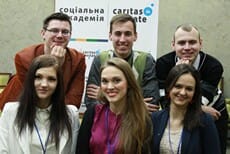
Ukraine: focus on Economy of Communion
 For a number of reasons it’s rather unusual for Ukrainian students to be mobile, to travel to other cities, to meet their fellows from other universities. Therefore, the winter school held in Sumy (Ukraine) from 2 to 7 February was a unique opportunity for the participants to meet and experience the cultural peculiarities of the different regions of Ukraine in a friendly environment of cooperation and mutual support. Because of this, the most important outcome of the winter school was that young people from all over Ukraine were able to meet and socialize, discuss their plans for the future, organize joint projects – and much more. Needless to say, such unity between young people of the East and the West of Ukraine is especially important in the current historical and extremely difficult times of crisis and civil war in the country. Even though after arriving in Sumy, the 42 participants declared that they were quite familiar with the topic of the winter school: “Values in Economy and Business”, by the end of the school all of them admitted that the contents of the lectures and workshops were actually all very new to them and that the illustrative examples given by the lectures provided them with a number of insights into the subject of corporate social responsibility. The school was hosted by the Ukrainian Academy of Banking, and kicked-off by its Associate Professor Petrushenko’s lecture on the ethics in business. His lecture sketched the main philosophical background of the ethics in business and introduced the major definitions of the subject matter of the social responsibility of businesses in society. The next presenter was Cristian Loza Adaui from the Friedrich-Alexander University Erlangen-Nuremberg (Germany) who gave an introduction to the Catholic social thought providing the basis for the EoC. His lecture was entitled: “The Business of Business is the Human Person” and initially it surprised and puzzled the participating students. Cristian Loza Adaui made a very deep theoretical introduction into another way of seeing business from a more humanistic and socially responsible and responsive perspective. He developed this topic further during the next day with a presentation that focused more on the practical application of the values in the context of social market economy. The presentation of Teresa Ganzon from the Philippines who shared her experience of running Bangko Kabajan, a rural financial institution based on the culture of giving and the Economy of Communion was also a new experience for the students who had never had a Skype lecture before and who admitted to be surprised by the very idea that banking could be based not only on the principles of profit maximization. In fact they could learn about a successful experience of running a financial institution that operates based on the respect for every customer as a person and taking into account his or her particular situation. Professor Tatiana Vasylieva talked about responsible social entrepreneurship in the Ukranian context, spending the entire fourth day together with the students. She invited in local representatives from banking and insurance business who spoke very openly and shared both their positive and negative experiences and presented their vision on how the main obstacles to a more socially responsible business in Ukraine could be overcome. Participating students found this lecture very interesting and engaged in a long discussion about the problems of contemporary Ukraine. Every day there were sessions of the winter school that were especially devoted to working on a number of small-group projects related to the subject of corporate social responsibility, ethics and values in business management. The representatives of the “Caritas in Veritate” Social Academy, the promoter of the school were there every day and joined in the discussions of the students’ ideas, helping them in their assigned tasks and in presenting their ideas to an external audience in an innovative manner. The last day of the winter school saw the presentations of the fruits of all the work done in groups. What turned out to be really interesting was the analysis of the controversial relationship between the traditional attitude towards the way business should be done in order to increase profits as much as possible and a social responsible entrepreneurship based on ethics and the values of the common good. All in all this winter school… was a great success.
For a number of reasons it’s rather unusual for Ukrainian students to be mobile, to travel to other cities, to meet their fellows from other universities. Therefore, the winter school held in Sumy (Ukraine) from 2 to 7 February was a unique opportunity for the participants to meet and experience the cultural peculiarities of the different regions of Ukraine in a friendly environment of cooperation and mutual support. Because of this, the most important outcome of the winter school was that young people from all over Ukraine were able to meet and socialize, discuss their plans for the future, organize joint projects – and much more. Needless to say, such unity between young people of the East and the West of Ukraine is especially important in the current historical and extremely difficult times of crisis and civil war in the country. Even though after arriving in Sumy, the 42 participants declared that they were quite familiar with the topic of the winter school: “Values in Economy and Business”, by the end of the school all of them admitted that the contents of the lectures and workshops were actually all very new to them and that the illustrative examples given by the lectures provided them with a number of insights into the subject of corporate social responsibility. The school was hosted by the Ukrainian Academy of Banking, and kicked-off by its Associate Professor Petrushenko’s lecture on the ethics in business. His lecture sketched the main philosophical background of the ethics in business and introduced the major definitions of the subject matter of the social responsibility of businesses in society. The next presenter was Cristian Loza Adaui from the Friedrich-Alexander University Erlangen-Nuremberg (Germany) who gave an introduction to the Catholic social thought providing the basis for the EoC. His lecture was entitled: “The Business of Business is the Human Person” and initially it surprised and puzzled the participating students. Cristian Loza Adaui made a very deep theoretical introduction into another way of seeing business from a more humanistic and socially responsible and responsive perspective. He developed this topic further during the next day with a presentation that focused more on the practical application of the values in the context of social market economy. The presentation of Teresa Ganzon from the Philippines who shared her experience of running Bangko Kabajan, a rural financial institution based on the culture of giving and the Economy of Communion was also a new experience for the students who had never had a Skype lecture before and who admitted to be surprised by the very idea that banking could be based not only on the principles of profit maximization. In fact they could learn about a successful experience of running a financial institution that operates based on the respect for every customer as a person and taking into account his or her particular situation. Professor Tatiana Vasylieva talked about responsible social entrepreneurship in the Ukranian context, spending the entire fourth day together with the students. She invited in local representatives from banking and insurance business who spoke very openly and shared both their positive and negative experiences and presented their vision on how the main obstacles to a more socially responsible business in Ukraine could be overcome. Participating students found this lecture very interesting and engaged in a long discussion about the problems of contemporary Ukraine. Every day there were sessions of the winter school that were especially devoted to working on a number of small-group projects related to the subject of corporate social responsibility, ethics and values in business management. The representatives of the “Caritas in Veritate” Social Academy, the promoter of the school were there every day and joined in the discussions of the students’ ideas, helping them in their assigned tasks and in presenting their ideas to an external audience in an innovative manner. The last day of the winter school saw the presentations of the fruits of all the work done in groups. What turned out to be really interesting was the analysis of the controversial relationship between the traditional attitude towards the way business should be done in order to increase profits as much as possible and a social responsible entrepreneurship based on ethics and the values of the common good. All in all this winter school… was a great success.
March 2015
While visiting the north of Galilee, in the villages around Caesarea Philippi, Jesus asked his disciples what they thought of him. Peter, speaking for them all, declared his belief that he was the Christ, the Messiah awaited for centuries. To avoid misunderstandings, Jesus explained how his mission should be understood. He would indeed free his people, but in an unexpected manner, paying in person. He would suffer greatly, be condemned, killed and, after three days, rise again. Peter did not accept this vision of the Messiah. As many others of his time, he imagined the Messiah to be someone who would act with power and strength, defeating the Romans and putting the nation of Israel in its proper place in the world. He reprimanded Jesus, who in turn said to Peter: ‘You are not thinking in God’s way, but as humans do’ (see Mk 8:31-33).
Jesus set off again, this time in the direction of Jerusalem, where he was to fulfil his destiny of death and resurrection. Now that his disciples knew he was going to his death, would they want to carry on following him? Jesus’ conditions are clear and demanding. He called the crowd and his disciples together and he said to them:
‘If any want to become my followers, let them deny themselves and take up their cross and follow me.’
They had been fascinated by him, the Master, when he walked by the lakeside, as they cast their nets to fish, or at the tax booth. Without hesitation they had left their boats, nets, booth, father, house, family to go running after him. They had seen him work miracles and had heard his words of wisdom. Until that moment they had followed him in a spirit of joy and enthusiasm.
Following Jesus, however, was something that required far more. Now what it meant to share fully in his life and destiny became clear: failure and hostility, even death, and what a death! It was the most painful, the most shameful of deaths; the one reserved for murders and the most vicious criminals. A death the Scriptures called ‘cursed’ (see Dt 21:23). Just mentioning the ‘cross’ caused terror. It was almost unspeakable. This is the first time the word appears in the Gospel. Who knows what impression it made on his listeners?
Now that Jesus had clearly affirmed his own identity, he could demonstrate with equal clarity the identity of someone who was his disciple. If the Master is one who loves his people to the point of dying for them, taking their cross upon himself, so too his disciple, to be such, must set aside his or her own way of thinking and share in the entire way of the Master, starting with the cross:
‘If any want to become my followers, let them deny themselves and take up their cross and follow me.’
Being Christian means being another Christ, to have ‘the same mind that was in Christ Jesus’ who ‘humbled himself and became obedient to the point of death—even death on a cross’ (Phil. 2:5,8), to be crucified with Christ, to the point of being able to say with Paul: ‘it is no longer I who live, but it is Christ who lives in me’ (Gal. 2:20), knowing nothing ‘except Jesus Christ, and him crucified’ (1 Cor. 2:2). It is Jesus who continues to live, die, rise again in us. This is the greatest desire and the ambition of the Christian, the thing that has created the great saints: being like the Master. But how can we follow Jesus and become like this?
The first step is to ‘deny yourself’, distance yourself from your own way of thinking. It was what Jesus asked of Peter when he reprimanded him for thinking in the manner of human beings and not God. We too, like Peter, wish at times to assert ourselves in an egotistical manner, or at least according to our own criteria. We look for easy and immediate success, with every difficulty smoothed away; we look with envy at those rising up the career ladder; we dream of having a united family and of building around us a caring society and a Christian community without our having to pay a high price.
Denying ourselves means entering into God’s way of thinking, which is how Jesus thought and is displayed in his way of doing things: the logic of the grain of wheat that must die to bear fruit, of finding more joy in giving than in receiving, of offering one’s life out of love, in a word, of taking up the cross:
‘If any want to become my followers, let them deny themselves and take up their cross and follow me.’
The cross, the ‘daily’ cross as Luke’s gospel calls it (Lk 9:23), can have a thousand faces: an illness, a job loss, the inability to sort out family or work problems, the sense of failure in being unable to create genuine relationships, the feeling of impotence before the world’s massive conflicts, indignation at the recurrent scandals of society… The cross does not need to be sought, it comes on its own, perhaps when we least expect it and in ways we would never have imagined.
Jesus invites us to ‘take it up’, not resigning ourselves to endure it as an evil we cannot avoid, not letting it come down on us and crush us, not even putting up with it by acting with stoicism and detachment. Instead welcome it as a sharing in his cross, as a possibility of being his disciples even in those situations and live in communion with him even in that suffering, because he first took our cross on his shoulders. In every suffering, whatever it may be, we can thus find Jesus who has already made it his own.
Igino Giordani saw in this an instance of role reversal with Simon of Cyrene who bore Jesus’ cross: the cross ‘weighs less if Jesus becomes our Cyrenian.’ And it weighs still less, he goes on to say, if we bear it together. ‘A cross borne by one person ends up as crushing; a cross borne together by several persons with Jesus in their midst, which is to say with Jesus taking it up as a Cyrenian, grows lighter: an easy yoke. A climb, with many climbers roped together, in agreement with one another, becomes a joy, even while the ascent is being made.’
So we are to take up the cross and bear it with him, knowing that we are not alone in carrying it because he bears it with us. This is relating, it is belonging to Jesus, even to the point of full communion with him, to the point of becoming another him. And this is the way that we follow Jesus and become true disciples. The cross will then become for us, as for Christ, ‘the power of God’ (1 Cor. 1:18), the way of resurrection. In every weakness we will find strength, in every darkness light, in every death life, because we will find Jesus.
Fabio Ciardi
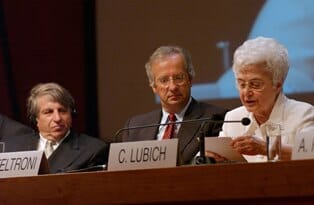
Chiara Lubich: Unity and Politics
 For Chiara Lubich politics was actually a vocation, “a personal calling that emerges from external circumstances and speaks through the conscience.” Answering to this vocation “is first and foremost an act of brotherhood: it acts in favour of something public, something concerning others, desiring the good of others as if it were one’s own.” Such an act, which creates the conditions for “an ongoing relationship with every sphere of life” – economy, health, communication, art, justice administration, and so on – sets the conditions so that society can fulfill its purpose.”
For Chiara Lubich politics was actually a vocation, “a personal calling that emerges from external circumstances and speaks through the conscience.” Answering to this vocation “is first and foremost an act of brotherhood: it acts in favour of something public, something concerning others, desiring the good of others as if it were one’s own.” Such an act, which creates the conditions for “an ongoing relationship with every sphere of life” – economy, health, communication, art, justice administration, and so on – sets the conditions so that society can fulfill its purpose.”
The global event will include a variety of local events across the globe, all of which will highlight the ideals of Chiara Lubich’s charism as it relates to politics, through stories of personal change and involvement in public affairs, raninge from addressing problems at the district, national and international levels. It will be an opportunity to welcome with renewed awareness the “dream” that inspired the life and thought of Chiara Lubich: “universal brotherhood.”
Italy. A meeting is scheduled on March 12, 2015 at the Parliament in Rome. In the morning, 300 young people of the Focolare from around the world will meet in the Auletta dei Gruppi of the Italian Parliament, for an open dialogue with politicians, scholars and representatives of international institutions. In the afternoon, the “Chiara Lubich: Unity and Politics” event will be held in the same Hall.
France. On March 13-15, 2015 at the Headquarters of the Council of Europe, in Strasbourg, a seminar titled: «Fraternité en politique: s’investir autrement dans la cité», an invitation to discover new paths that favour living together.
Canada. On March 13, 2015 a debate will be held at Glendon College of the York University of Toronto, titled: “Politics for Unity. Making a World of Difference.” Brazil. In Curitiba, the «Política pela unidade, fazendo toda a diferença no mundo» will explore how doing politics in function of unity, makes the difference. South Korea. On March 14, 2015, at the Parliament which in the past was a theatre of fierce fighting, “On the journey towards universal brotherhood.” Events will also be held in Nairobi, Kenya, Dar es Salaam, Tanzania, Madrid, Spain, Budapest Hungary, Prague, Czech Republic, and more. An online map of events and further information can be found at: www.politicsforunity.com. To join the online discussion the hashtag is: #politics4unity.
Reflection on the theme “Chiara Lubich: Unity and Politics” in the plurality of cultural and geographical areas will be an opportunity to further explore the heritage left to history by Chiara, whose Cause of Beatification was opened on January 27, 2015.

Philippines: Social Media for peace
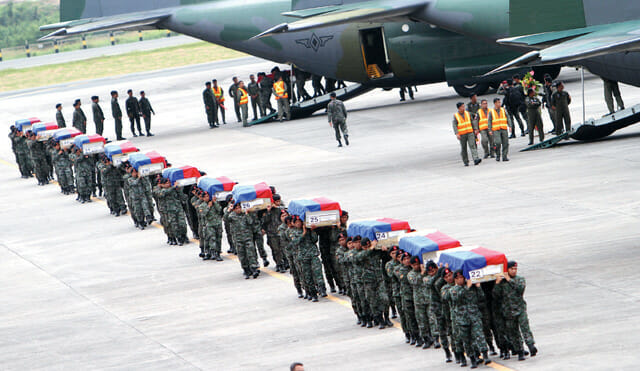 «The country is undergoing a very difficult period. In fact a police contingent sent to arrest some terrorist suspects, was attacked by the fighters of the Moro Islamic Liberation Front and 44 policemen were killed. The Parliament was just deliberating on the new peace treaty between the government and Muslims of Mindanao, with extensive grants in many fields. However, these were blocked and yesterday a video network showed the video of a wounded policeman who was repeatedly beaten to death by a militant of the Front. The indignation of the people was unimaginable!» wrote Carlo and Ding from Manila. Oscar works instead in the government’s Communications Office which therefore had to report on the event. It was not an easy task for one like him who is daily committed to living the spirituality of unity with everyone. «In my job – he wrote– I have to oversee all that happens in the Social Media. This morning I saw the video of our SAF people (policemen) killed by the Muslim rebels. I was very shocked on seeing a policeman on the ground, wounded but still alive, being hit twice on the head and another gutted out with a sickle in his chest… It was terrible, almost surreal, and I couldn’t breathe. The video also showed the rebels gather the arms and personal effects of the policemen and then continued to shoot. It was so hard to think of peace while I was watching those images. I wanted to react, do something. I was almost in tears. Then, watching the sessions of Parliament regarding the event. Some tried to blame a general for his imprecise instruction, and others accused other officers for lack of coordination. Once again I thought, how can we talk of peace? The video on the internet has already been viewed by at least four million people. Part of my work consists in seeing the possible scenarios of a way out. So I ask myself what could be the worst scenario, and I felt fear. I imagine that after seeing those images, many could be overcome by anger and seek revenge. They could see in every Muslim a possible aggressor and turn against him. “And what if a civil revolt is triggered?” I wondered. In the office, as can be imagined, my colleagues were highly emotive. I tried to listen to what God was saying to me in my heart: “More than ever we have to speak of peace. If those among us who have a better view of the situation feel these sentiments of revenge, how will the more emotive and less informed people react?”
«The country is undergoing a very difficult period. In fact a police contingent sent to arrest some terrorist suspects, was attacked by the fighters of the Moro Islamic Liberation Front and 44 policemen were killed. The Parliament was just deliberating on the new peace treaty between the government and Muslims of Mindanao, with extensive grants in many fields. However, these were blocked and yesterday a video network showed the video of a wounded policeman who was repeatedly beaten to death by a militant of the Front. The indignation of the people was unimaginable!» wrote Carlo and Ding from Manila. Oscar works instead in the government’s Communications Office which therefore had to report on the event. It was not an easy task for one like him who is daily committed to living the spirituality of unity with everyone. «In my job – he wrote– I have to oversee all that happens in the Social Media. This morning I saw the video of our SAF people (policemen) killed by the Muslim rebels. I was very shocked on seeing a policeman on the ground, wounded but still alive, being hit twice on the head and another gutted out with a sickle in his chest… It was terrible, almost surreal, and I couldn’t breathe. The video also showed the rebels gather the arms and personal effects of the policemen and then continued to shoot. It was so hard to think of peace while I was watching those images. I wanted to react, do something. I was almost in tears. Then, watching the sessions of Parliament regarding the event. Some tried to blame a general for his imprecise instruction, and others accused other officers for lack of coordination. Once again I thought, how can we talk of peace? The video on the internet has already been viewed by at least four million people. Part of my work consists in seeing the possible scenarios of a way out. So I ask myself what could be the worst scenario, and I felt fear. I imagine that after seeing those images, many could be overcome by anger and seek revenge. They could see in every Muslim a possible aggressor and turn against him. “And what if a civil revolt is triggered?” I wondered. In the office, as can be imagined, my colleagues were highly emotive. I tried to listen to what God was saying to me in my heart: “More than ever we have to speak of peace. If those among us who have a better view of the situation feel these sentiments of revenge, how will the more emotive and less informed people react?”  One of my colleagues suddenly said: “Peace is unpronounceable at this moment. We have to focus on the unity of all the Filipinos, beyond every religious creed. And another said “What happened was an act of violent men who cannot be identified with the entire Muslim community.” Slowly, the anger began to die down. We also remembered what a Mindanao deputy had said: “We are easily angered and influenced by our emotions, because we have not seen with our own eyes the effects a war at our doorstep would have. War is not the answer.” I was pleasantly surprised and left the meeting with a sort of peace inside. In these times, more than anything else, I think we have to work together to bring the ideal of unity to as many people as possible. The menace of war is real. The menace of our compatriots who are angry with our Muslim brothers is real. But the Gospel shows us the path of dialogue and peace. Tomorrow will be a new day for me, another day of listening to many conversations online. I will have the chance to build relationships based on trust and peace. »
One of my colleagues suddenly said: “Peace is unpronounceable at this moment. We have to focus on the unity of all the Filipinos, beyond every religious creed. And another said “What happened was an act of violent men who cannot be identified with the entire Muslim community.” Slowly, the anger began to die down. We also remembered what a Mindanao deputy had said: “We are easily angered and influenced by our emotions, because we have not seen with our own eyes the effects a war at our doorstep would have. War is not the answer.” I was pleasantly surprised and left the meeting with a sort of peace inside. In these times, more than anything else, I think we have to work together to bring the ideal of unity to as many people as possible. The menace of war is real. The menace of our compatriots who are angry with our Muslim brothers is real. But the Gospel shows us the path of dialogue and peace. Tomorrow will be a new day for me, another day of listening to many conversations online. I will have the chance to build relationships based on trust and peace. »

Gen Rosso: CAMPUS The Musical
 “It’s 7:00 in the morning of 28 April at the central station. A day and place that the students of Campus will never forget. Something unexpected is about to happen and… they have to make their choice: this is the moment!” A scene of great emotive and theatrical impact opens CAMPUS, the new musical of Gen Rosso, in a preview on 14 and 15 March 2015 in Loppiano, at the International Centre’s Auditorium. The first world Tour will start in Naples on 28 and 29 March 2015 at the Mediterraneo Mostra d’Oltremare Theatre. Prompted by an original idea of Chiara Lubich, the work in fact is drawn from real events and staged after 10 years of thematic and artistic research. The campus is like the cities we live in Valerio Ciprì says: «It immediately appeared to me that the campus environment is really a metaphor of the daily life co-existence of our globalised cities. Today cities are the settings of dramatic contradictions that range from decline to delinquency, drug addiction to corruption, and places of redemption in which citizens repossess their space for solidarity and humanity. This is precisely the message Campus conveys: we cannot build a united society by annulling our differences, but by facing the challenges and rolling up our sleeves to create authentic relationships. Against the background of an era, our present time, marked by the drama of fear and terrorism, the stories of a group of students unravel on stage, each with his dreams and projects for the future, and a present heavily burdened with wounds, anguish and queries.» A daring show, amid engaging sounds and pressing issues The musical is composed of 23 pieces, choreographic transitions interacting with film sequences, theatre actions and movement. «The artistic project is the result of the team work of international professionals» – Beni Enderle explains. «The sounds are forceful and rich in style contaminations and harmonic inter-wefts, with melodies that range from the buoyancy of Latin atmospheres to the pathos of Afro rhythms, in a synthesis of forceful and captivating sounds.» «As we delve deeper into the story and the atmosphere of the show – Josè Manuel Garcia continues – one feels the onset of a global reality that emerges from a narrative layout that goes straight into the heart of contemporary challenges, within an original and strictly live sound track that covers the rhythms and sounds of Rock, Pop, Reggae, Samba-axe, Contemporary electronic, Hip-hop and up to Dubstep…». The stage scenery is avant garde. Jean Paul Carradori says: «I have worked in many international productions. Campus for me was an unexpected challenge due to its strong drama and theatrical layout. We had to create a setting that highlights the contents and at the same time leads the spectator to immerse into the story. » Produced by the Gen Rosso International Performing Arts Group (16 artists from 9 nations) in an innovative, artistic, technical, directive and managerial work methodology, the Musical is the fruit of the convergence and synergy of an international team. Pre-sales tickets: CLICK HERE (tel.055 9051102 – mail genrosso.campus@loppiano.it) On-line: tickets can be bought on the Internet at: concerto 14/03 – concerto 15/03 Download the poster
“It’s 7:00 in the morning of 28 April at the central station. A day and place that the students of Campus will never forget. Something unexpected is about to happen and… they have to make their choice: this is the moment!” A scene of great emotive and theatrical impact opens CAMPUS, the new musical of Gen Rosso, in a preview on 14 and 15 March 2015 in Loppiano, at the International Centre’s Auditorium. The first world Tour will start in Naples on 28 and 29 March 2015 at the Mediterraneo Mostra d’Oltremare Theatre. Prompted by an original idea of Chiara Lubich, the work in fact is drawn from real events and staged after 10 years of thematic and artistic research. The campus is like the cities we live in Valerio Ciprì says: «It immediately appeared to me that the campus environment is really a metaphor of the daily life co-existence of our globalised cities. Today cities are the settings of dramatic contradictions that range from decline to delinquency, drug addiction to corruption, and places of redemption in which citizens repossess their space for solidarity and humanity. This is precisely the message Campus conveys: we cannot build a united society by annulling our differences, but by facing the challenges and rolling up our sleeves to create authentic relationships. Against the background of an era, our present time, marked by the drama of fear and terrorism, the stories of a group of students unravel on stage, each with his dreams and projects for the future, and a present heavily burdened with wounds, anguish and queries.» A daring show, amid engaging sounds and pressing issues The musical is composed of 23 pieces, choreographic transitions interacting with film sequences, theatre actions and movement. «The artistic project is the result of the team work of international professionals» – Beni Enderle explains. «The sounds are forceful and rich in style contaminations and harmonic inter-wefts, with melodies that range from the buoyancy of Latin atmospheres to the pathos of Afro rhythms, in a synthesis of forceful and captivating sounds.» «As we delve deeper into the story and the atmosphere of the show – Josè Manuel Garcia continues – one feels the onset of a global reality that emerges from a narrative layout that goes straight into the heart of contemporary challenges, within an original and strictly live sound track that covers the rhythms and sounds of Rock, Pop, Reggae, Samba-axe, Contemporary electronic, Hip-hop and up to Dubstep…». The stage scenery is avant garde. Jean Paul Carradori says: «I have worked in many international productions. Campus for me was an unexpected challenge due to its strong drama and theatrical layout. We had to create a setting that highlights the contents and at the same time leads the spectator to immerse into the story. » Produced by the Gen Rosso International Performing Arts Group (16 artists from 9 nations) in an innovative, artistic, technical, directive and managerial work methodology, the Musical is the fruit of the convergence and synergy of an international team. Pre-sales tickets: CLICK HERE (tel.055 9051102 – mail genrosso.campus@loppiano.it) On-line: tickets can be bought on the Internet at: concerto 14/03 – concerto 15/03 Download the poster
Chiara Lubich: “Liberty, equality… whatever happened to fraternity?”
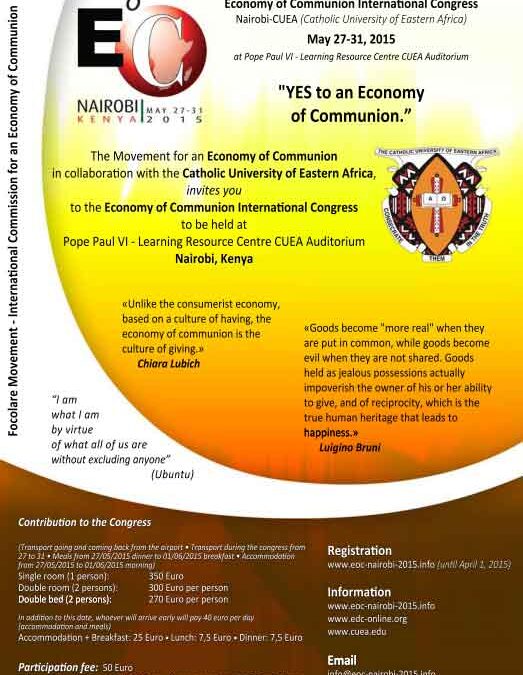
Kenya: International EoC Conference
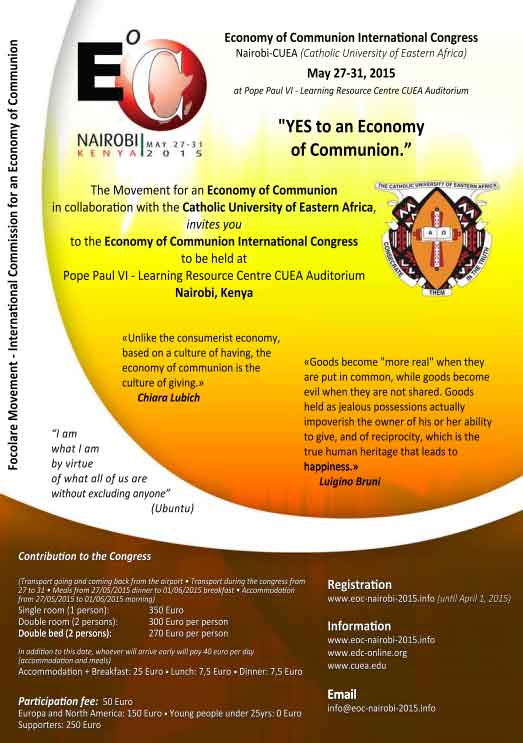 “Remember, Luigino, I created the EoC for the poor. You do well to study, but always remember the poor.” Chiara Lubich repeated these words to me many times in the ten years in which I joined her in the international commission, to coordinate the EoC.
“Remember, Luigino, I created the EoC for the poor. You do well to study, but always remember the poor.” Chiara Lubich repeated these words to me many times in the ten years in which I joined her in the international commission, to coordinate the EoC.
To redeem people from the poverty they suffer (quite different from the poverty they choose) continues to be the ultimate goal of the project, the meaning of our actions. As long as there are people on earth who cannot have a decent existence for lack of resources, no economic and social system can be defined as just, and much less as being one of communion.
The types of poverty loved and alleviated by the EoC in these 23 years of life have diversified and expanded. From the favelas of São Paulo and Brazil, we immediately passed on to the favelas of many cities; then we realized, through the tenacious action of entrepreneurs like Paco Toro (Spain) that to reduce poverty we could create jobs and together with the NGO called Azione Mondo Unito (AMU; Action for a United World) we started to support the development of micro production activities in various countries of the world. Finally, we observed that the present crisis had brought back old and new types of poverty into our rich Europe, too. Among these types there is the plague of gamble, which is devastating hundreds of thousands of families, especially the poorer ones. Hence the commitment of the EoC Italy to support the Slotmob campaign, which has taken place in more than 70 cities in just one year and is changing the mentality of many people.
Furthermore, in recent years, the EoC has been spreading especially on the African continent, where the number of companies that this year have started to pay profits to support the world’s poor rose to 10, while 12 others have approached the project; there are several scholarships offered to young Africans, some of whom diligently attend the Sophia University Institute.
So, feeling attracted by this new and flourishing way of life, as an expression of reciprocity, 
We will be in that great city from 27 to 31 May and from 22 to 26 May for the first Pan-African school for young people that will also take place there. A continent that is still suffering too much because of predatory relations that many industrialized countries have had and continue to have with it (before forgetting it and then isolating it), when feeling the danger of infection, Africa is destined to be the main protagonist of the economy and society of tomorrow.
Africa’s love of life, its youth, its ancient cultures, all these say it already in a powerful way. The EoC wants to go to Africa to love it, to learn from its culture of life, to practice communion and reciprocity. And to construct a new development model and a new economy. But we want to do this together, and in mutual esteem. At the feast of the peoples.
Luigino Bruni
Registration: www.eoc-nairobi-2015.info
Info: info@eoc-nairobi-2015.info

Giordani: The Role of the Writer

“In a rational world the writer should be located at the center of social life, as the one who directs and plays the spirit of the people. But the world is only partly ruled by rationality, in many ways is governed by instinct, by irrational passions such as fear. Writers become popular inasmuch as they discern and perhaps aggravate the instincts of the masses.
Today, on the one hand, technology reigns, mechanics, sports and cinema; on the other demagoguery, profiteering and politics first. If writers don’t want to see themselves reduced to a marginal function, they feel that they must serve material interests or interests marked by passion. They feel compelled to produce a journalism that often is necessarily subservient because of the huge cost to industrial groups, political parties, ideologies and profitable professions. Freedom of the press decreases because the free press is weakened under financial pressure, and the freedom of the writer is weakened. This helps explain the decline of what are considered great writers, and why more than one has switched to work in the political arena or sought out other areas of interest.
If the decline of rationality in people did produce the weakening of writing and writers shrinking to the margins, it is also true that it was the spiritual, moral and intellectual decadence of writers that distanced readers. The truth is that writers are both the cause and effect of their social environment. They need to be more the cause or less the effect. If they were what they should be –teachers or, I would even say, apostles or prophets – the people would either follow them or flay them. In short, they would show a lively interest in the manifestations of their spirit. The writer’s place is on the edge, the edge of discovery, the edge of risk. In fact, in order to carry out their apostolic mission of educating and raising the public, writers are likely to face poverty and misunderstanding.
The position of a writer is relative to the value of his or her message, and to its artistic strength and the manner in which it is expressed. In a world where technology and organization, planning and centralization, gregariousness and the fatigue of freedom have overtaken the human soul, overloading it with noise and commands, a free writer who contributes to spiritual liberation— the redemption of human beings— helping to overcome the large and small “failures” of the external and internal world, plays a greater role than that of the statesmen who are more popular.
In a world worn out by divisions and trembling with hatred and fear, one word of brotherhood and humanity, of charity therefore, spoken with clarity, beauty, and power would seal the gratitude of the people toward its author, conferring on him or her a central role in the orbit of civilization.
Igino Giordani: (Rome: Il compito dello scrittore, La Via, February 2,1952) p. 3.
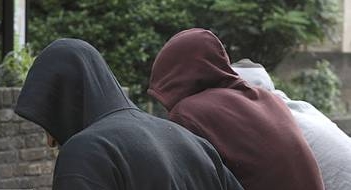
Living the Gospel: accepting others as they are
“Our daughter, after a painful delusion (her breaking off with her boyfriend), came to live with us with her baby girl. She is often bitter and aggressive. One morning, for a trifle matter she mistreated me and her brothers, and shouting, left for work, slamming the door. I was really hurt and I felt she had simply gone over the limit and that we really did not deserve all this. I asked myself how I could let her see that I loved her. I prepared a special feast-day lunch with a cake, and set the table with the nicest tablecloth… When she returned, I greeted her as if nothing had happened. She smiled and I felt that I had not only forgiven her, but also forgotten the event. Harmony was reestablished among us.”
(R. B. – Italy )
 “Last Saturday, my parents and I were about to close our grocery shop when two hooded characters came inside and ordered us to open the safe. Dad thought it was the usual robbery at gunpoint with a toy gun, and asked them to leave. Instead, the gun fired a shot which wounded him, though not seriously. After the bandits escaped, in a split second I remembered the group of people who, in another part of Sicily help the youth in the high risk districts of their city. So with my friends, I decided to do something myself to stop some other kids from getting involved with gangsters. Though a bit hesitant, I started going to an area of the city having highly delinquent residents, and once I found out what the real problems were in that district, I talked to the local administrators and the families of some police officers who had been killed. We formed a group to testify to people, especially the youth, that a better and nonviolent world is possible. That Saturday has changed my life.”
“Last Saturday, my parents and I were about to close our grocery shop when two hooded characters came inside and ordered us to open the safe. Dad thought it was the usual robbery at gunpoint with a toy gun, and asked them to leave. Instead, the gun fired a shot which wounded him, though not seriously. After the bandits escaped, in a split second I remembered the group of people who, in another part of Sicily help the youth in the high risk districts of their city. So with my friends, I decided to do something myself to stop some other kids from getting involved with gangsters. Though a bit hesitant, I started going to an area of the city having highly delinquent residents, and once I found out what the real problems were in that district, I talked to the local administrators and the families of some police officers who had been killed. We formed a group to testify to people, especially the youth, that a better and nonviolent world is possible. That Saturday has changed my life.”
(M. – Sicily, Italy )
“I was 12 when my parents separated. It was a painful thing, and particularly one detail did not leave me in peace: I could not forgive my dad for leaving us to form another family. Initially, when he would call, I didn’t even want to talk to him. Then one day, I asked Jesus for help, and found the courage to show him that I did not hold it against him. On father’s day I tried to show this concretely by preparing a gift. When he saw it, I saw that he was deeply moved. He then confided that apart from the rest, the most important things for him were his children. From that moment on, I felt I had opened my heart to him once more. Much later, knowing that he was lonely, I spontaneously started to talk to him about God who loves each one of us immensely. It assured him and he expressed the desire to know more about this topic. The experience with dad is helping me to see that we all make mistakes, but that each person must be given the chance to rise up again.”
(H. – Brazil)
Chaos in Libya: A Brave Voice
«Bishop Giovanni Martinelli is a little giant. A brave person who, despite the serious health problems besetting him for two years now, continues to “doggedly” stay on in his Libya, and with love take care of his sheep, now just a handful of Filipinos working in the hospitals as nurses and who “cannot” leave the country.
He started by saying, “I have nothing special to say – we have become orphans of the ambassador who has left. But I repeat, I have nothing to say; we are here because Jesus wants us here. I am at the service of this population, and not for any kind of power.”
How about the Catholic community? The Christian communities are still here, we are fine.”
Are you serene? “We have just celebrated Mass. God is with us, what should we fear?”
Is also Fr. Sylvester still in Bengasi? “Of course – Bishop Martinelli answered – also he says that we can stay on to be close to the people who are suffering so much.”
What do you forecast for the future? “It is very hard to make a forecast, or rather, it would be better not to since we had forecasted events that did not come about. We live day by day, or rather, moment after moment. The present moment embraces all. In that moment I encounter Jesus, my brothers, and love these people.”
What’s the situation like in Tripoli? “It seems to be quite calm, they haven’t prohibited anything. The atmosphere is serene and pacific. It is not dangerous to move around during the day. Of course we stay home in the evenings.”
Afraid? “For the moment we haven’t been threatened directly. Let’s see how things develop. They may behead us… but I am willing to deliver it on a plate, since I am here to die for my people.”
What role do you think Italy can play in this situation? “Italy has been very involved, especially the Ambassador, to keep the channels for dialogue open between the different tribes and factions. As of now Italy has taken up a propaganda for peace.”
And what about a foreign intervention? “I don’t think this is a solution.”
In 2011, when there were winds of war, you said that if this happened, Libya would risk the explosion of tribal and political divisions. Unfortunately the Europeans seemed to be certain that elective democracy would positively contaminate the country… “Prudence would have been advisable, then and now. International diplomacy should do its part to allow various pieces of Libya to assemble. We shouldn’t impose political visions that do not belong to these people.”
He then concluded: “If one comes here only with arms and without a strong will to dialogue, it would be useless. You have to come here to love the people, not to target the interests of the western world, or exploit the petrol and other resources. One must come only if pushed by the desire to dialogue with the Muslims. I am here for this, and not for anything else.»
Source: New City online
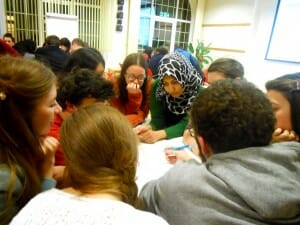
#DoYouCare? Do you care about dialogue?
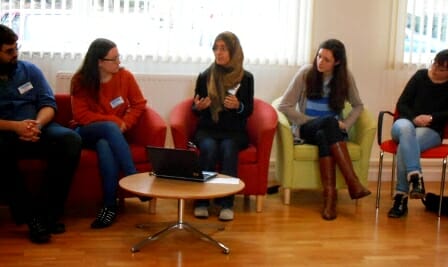 The group of 80 young Christians and Muslims. The topic: multiculturalism, religious diversity and dialogue. The question: Do you care? The format: to “Regenerate,” with two days at Hertfordshire, in a relaxed atmosphere where even burning issues were able to be discussed. The protagonists were young people from the Focolare Movement in Great Britain and Ireland and, this year, a group from the Islamic Unity Society with whom there has been growing friendship and mutual esteem, several projects, study sessions and planting peace trees. Participants listened directly to the experience of Dr Mohammad Ali Shomali, Director of the Islamic Centre of England, who spoke in video conference from Paris. He encouraged the group to “encourage opportunities of dialogue with everyone: dialogue is what characterises us as human beings. Accepting to dialogue with anyone who is different from us does not diminish us, but makes us more true to ourselves.”
The group of 80 young Christians and Muslims. The topic: multiculturalism, religious diversity and dialogue. The question: Do you care? The format: to “Regenerate,” with two days at Hertfordshire, in a relaxed atmosphere where even burning issues were able to be discussed. The protagonists were young people from the Focolare Movement in Great Britain and Ireland and, this year, a group from the Islamic Unity Society with whom there has been growing friendship and mutual esteem, several projects, study sessions and planting peace trees. Participants listened directly to the experience of Dr Mohammad Ali Shomali, Director of the Islamic Centre of England, who spoke in video conference from Paris. He encouraged the group to “encourage opportunities of dialogue with everyone: dialogue is what characterises us as human beings. Accepting to dialogue with anyone who is different from us does not diminish us, but makes us more true to ourselves.”  The honoured guest was Angela Graham who worked at BBC. Raised in Northern Ireland, she began from her own experience as she encouraged the young people to become “people of dialogue” within their own environments, trying to build bridges with people of other cultures and faiths. During the weekend of February 14-15, 2015 at the Focolare Centre for Unity which welcomed them in Welwyn Garden City there were workshops on the various topics: from interreligious dialogue to the social media; from politics to social commitment. “It’s quite striking to experience here people who are so passionate about living and working with God,” said Mohammed Mozaffari, one of the young Muslim men from the Islamic Unity Society. Lucia, from the Young for Unity group remarked: “The differences are not an obstacle, but an aid for building something together.” “Even those who had difficulty in identifying with a formal religion felt quite at ease, and builders like the rest of us,” say Nino and Mil who were among the organisers of the event. The event did not go unnoticed by civil leaders. Town Councilman, Michal Siewniak, stated: “It is encouraging to see young adults from different cultural and religious backgrounds becoming mutually involved in dialogue, and together looking for answers on how to live in harmony within a multicultural and multi-religious society.”
The honoured guest was Angela Graham who worked at BBC. Raised in Northern Ireland, she began from her own experience as she encouraged the young people to become “people of dialogue” within their own environments, trying to build bridges with people of other cultures and faiths. During the weekend of February 14-15, 2015 at the Focolare Centre for Unity which welcomed them in Welwyn Garden City there were workshops on the various topics: from interreligious dialogue to the social media; from politics to social commitment. “It’s quite striking to experience here people who are so passionate about living and working with God,” said Mohammed Mozaffari, one of the young Muslim men from the Islamic Unity Society. Lucia, from the Young for Unity group remarked: “The differences are not an obstacle, but an aid for building something together.” “Even those who had difficulty in identifying with a formal religion felt quite at ease, and builders like the rest of us,” say Nino and Mil who were among the organisers of the event. The event did not go unnoticed by civil leaders. Town Councilman, Michal Siewniak, stated: “It is encouraging to see young adults from different cultural and religious backgrounds becoming mutually involved in dialogue, and together looking for answers on how to live in harmony within a multicultural and multi-religious society.”
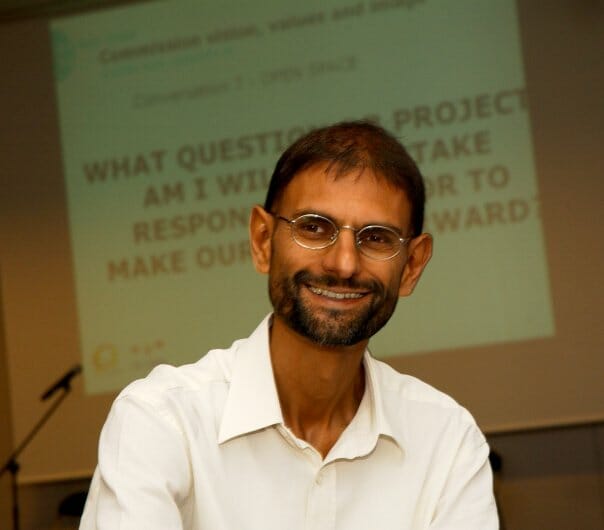
Chiara Lubich: Another vision and exercise of power
“The life and ideas of Chiara Lubich have introduced a radical novelty that totally surpasses the concept of power as dominion. The idea of power seen as the solitary peak of a pyramid is always present and dominant at times: we often tend to think that one man alone in command, with a clear vision and the strength to impose it is the best and more reassuring solution […]. Chiara has always had a great and absolute respect for power […]. At the same time, her relationships with people at the top of the civil hierarchical ladder (heads of states and governments, presidents of European institutions) or religious (popes, patriarchs…) never showed any sign of servitude. On the contrary, her respect for authority was expressed in a creative way, by offering ideas and suggestions in an attitude of dialogue and stimulus, and placing herself and the resources of the Focolare Movement at the disposition of projects for the benefit of society, especially the poor.
Co-responsibility. Upon exercising power within the Movement she had founded, Chiara set the basis […] for a collective management of responsibility, in line with the spirituality of communion, typical of her charism. At the presidency of the movement, especially for juridical motives, there is only one person, and Chiara wanted this person to be a woman, taking as the model, Mary, the mother of Jesus, who did not have any power except for that of love […]. This is one of the key concepts of Chiara’s charism: the hierarchy exists, and its role is irreplaceable, but stands in the background; what emerges is that we all are first and foremost, brothers and sisters, children of an only God who is love […]. And all of us learn from the example of Jesus, the sole and real master.
Collective leadership. I had the chance to personally see the way Chiara exercised her role of leader when in Stuttgart, 2004 and 2007 we prepared the two meetings of the movement and Christian communities of different Churches […]. I was struck by the way in which she gave room to each one, his ideas and questions. It was as if she was listening to a word God could have pronounced through the words of one of the participants. […]. She took each word seriously and asked the entire group to make their common decision, a true example of collective leadership in action […].
Exercising one’s own role and making room for the other. This was the essence of Chiara’s concept of power, as likewise the contrasting features: the person who holds a position of power has to fully exercise this role (being), and at the same time totally make room for the other, including the subordinates (nonbeing). Likewise, whatever their role and position in the hierarchical ladder, all give their own indispensable contribution (being) and in donating it, lose it since they cannot impose it (nonbeing). This dynamics creates communion, unity in diversity. In fact, for Chiara unity is never static, or something which cancels the components, but is new and surprising each time, because always in vital movement, it is an image of God and the relationship of love among the persons of the Trinity […].
Resolving conflicts together. A practical example of the power exercised as love, in Chiara’s view, is the management and resolution of conflicts. In face of a conflict there are different options: avoid the difficulties of facing it, letting the head decide for all, or else, undertake a journey together with all those involved in the conflict. It would be a long and probably painful journey to face the conflict and emerge with a solution, not with an individual decision, but through a group experience. This solution is not handed down either from the top or given from below, but is the result of a common effort in which each gives his version of truth, in order to reach a common solution.”
See complete text (in Italian)
Chiara Lubich
Politics for Unity
Making a world of difference
March 2015
Info: http://www.politicsforunity.com/
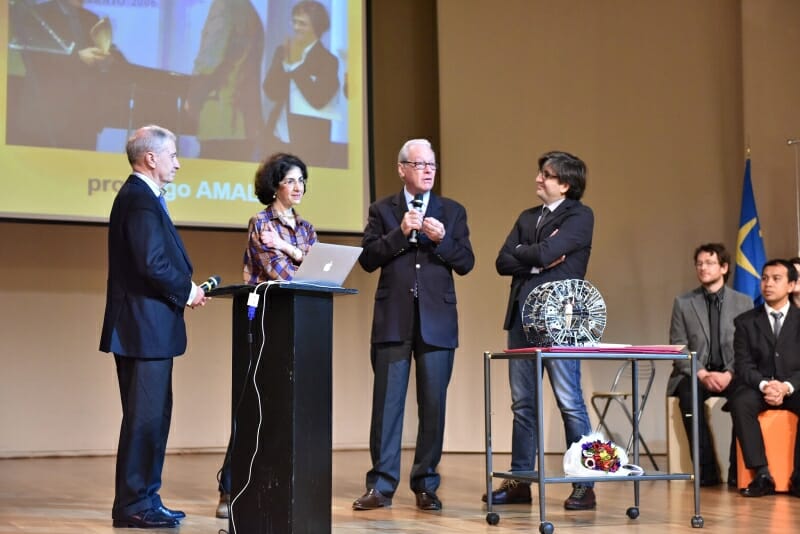
The 2015 Renata Borlone Prize
 The infinitely small and infinitely big that interact to explain the universe, the application of discoveries such as the Higgs boson, in the medical, technological and social fields. Fabiola Gianotti, the next director of the CERN (European Nuclear Research Centre.) of Geneva, spoke about this on 15 February in Loppiano, before an audience of 800 people among which were scientists, enthusiasts of the scientific world, artists, friends, families and about 200 secondary school students.
The infinitely small and infinitely big that interact to explain the universe, the application of discoveries such as the Higgs boson, in the medical, technological and social fields. Fabiola Gianotti, the next director of the CERN (European Nuclear Research Centre.) of Geneva, spoke about this on 15 February in Loppiano, before an audience of 800 people among which were scientists, enthusiasts of the scientific world, artists, friends, families and about 200 secondary school students.
In short, it seems that science has once again become fashionable in 2015, year in which people are still beset by the economic crisis, but are likewise in search of “infinite spaces that re-focus on what we are, our dignity, and mission in life,» one of those in the audience said. The merit certainly goes to scientists like Gianotti, but also to events like the awarding of the Prize, “Renata Borlone, woman of dialogue.” It was an event of great educational values, where faith and culture intertwined to bring about moments of personal and social growth.
Dr. Giannotti received innumerable messages of congratulations, among which was that from Maria Voce: «The Renata Borlone Cultural Association and Sophia University Institute (IUS) join in the general acclaim, underlining in a particular way, the values that inspire Dr. Giannotti’s life as a woman and scientist.» The Focolare President stressed “the kinship of ideals and objectives of these two figures” (Gianotti and Borlone), though in diverse fields.
«The Higgs boson is considered as the site that gives rise to all the mass of particles in the universe – affirmed Lida Ciccarelli, postulator of the cause for the beatification of Renata Borlone – Renata too was fascinated, not only by science but by all that regards humanity, and had found that site, that field which had given meaning to her life and her daily existence: God. And just as the scientist moves to lift the veil of mystery surrounding the world of science – she continued – she had found in God the revelation of the “other” who asks for love, acceptance, comprehension, and sharing of joys and sufferings, with a human heart. She lived in this divine space and those whom she encountered found a renewed dignity in discovering that they are sons of God.»
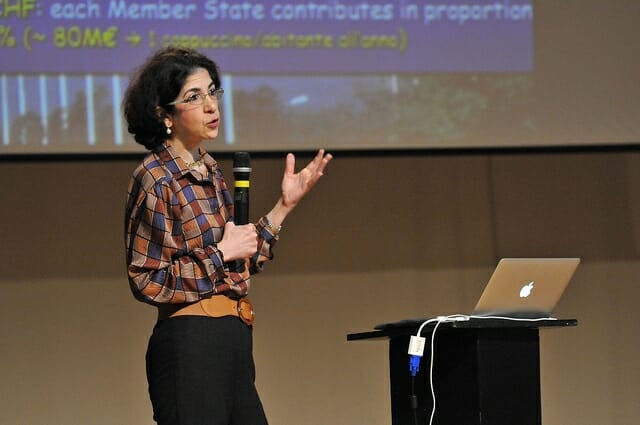 The Prize’s third edition was intended for scientific research enthusiasts and targets to also promote dialogue with those in the academic field who commit themselves to promoting a culture that respects the dignity of the human person. The reason for the conferment of the prize to Fabiola Gianotti, was read by IUS Prof. Sergio Rondinara: “For her elevated professional qualities, her passion in scientific research and her human capacity in guiding a great number of scientists and researchers involved in the CERN’s ATLAS experiment.”
The Prize’s third edition was intended for scientific research enthusiasts and targets to also promote dialogue with those in the academic field who commit themselves to promoting a culture that respects the dignity of the human person. The reason for the conferment of the prize to Fabiola Gianotti, was read by IUS Prof. Sergio Rondinara: “For her elevated professional qualities, her passion in scientific research and her human capacity in guiding a great number of scientists and researchers involved in the CERN’s ATLAS experiment.”
The prize statue is a work of the Chinese artist, Hung, and represents a miniature of a particle accelerator.
Dr. Giannotti’s speech was an intense and passionate exposition that captivated the audience’s attention, and she conducted them on a virtual tour of the universe of infinitely tiny, elementary particles and especially the Higgs boson, discovered at the end of 2012 thanks to the constant work of 3,000 scientists of 38 countries and the technology of the particle collider LHC (Large Hadron Collider), 27 km long, laid out at 100 meters under the ground between Switzerland and France.
«Some of you may wonder: what is so important about these particles? – the scientist said – in reality this question is intrinsically related to our lives, since if the particles did not have the masses they possess, we would not exist. If the electron did not have a mass, the atoms would not bond together and, therefore, chemistry would not exist and there would be no matter, the way we know it. So we exist also thanks to this Higgs mechanism.»
As to the applications of particle collider, she explained that these are widely used in the medical field to cure tumors. Dr. Giannotti concluded that the CERN research investigates fundamental queries on elementary particles and, therefore, on the structure and evolution of the universe, which are vital for their impact on daily life. «But the fundamental knowledge – she concluded – is in itself important because it is one of the irrevocable rights of man – beyond all the concrete applications, and is somewhat like art which is among the highest expressions of man as a knowledgeable being. And so, to negate the absolute importance of these activities would be like degenerating human nature itself.»

